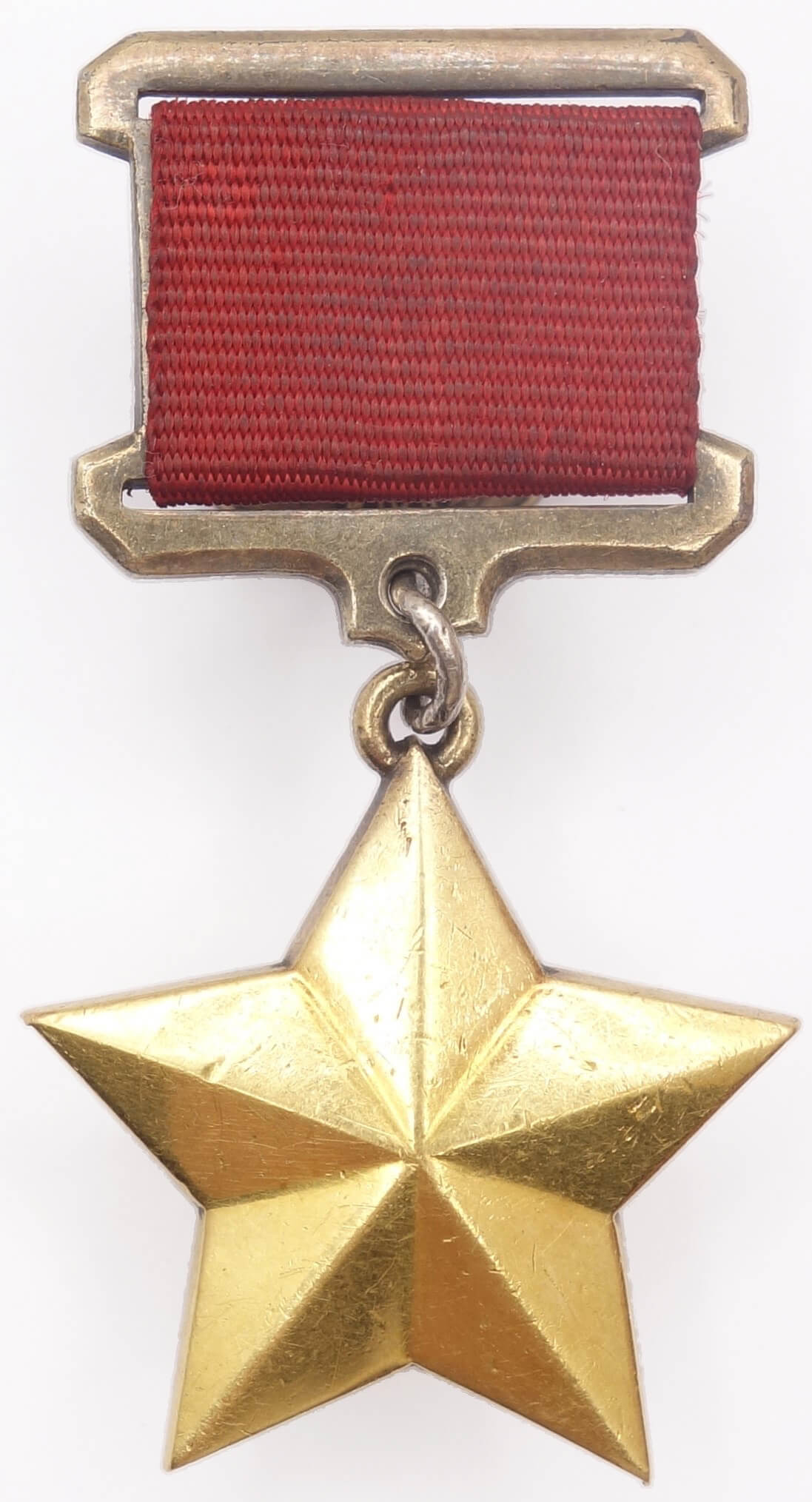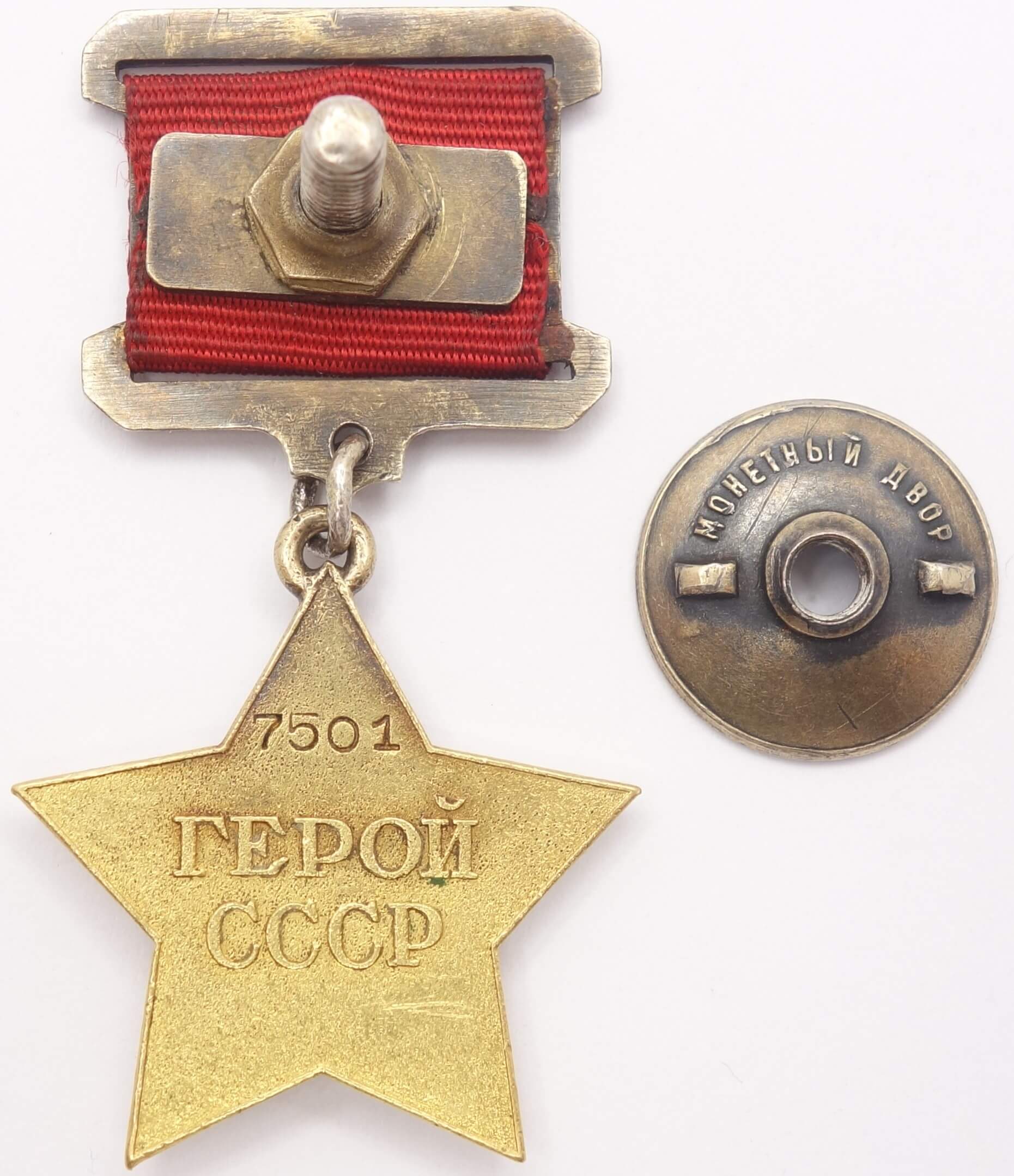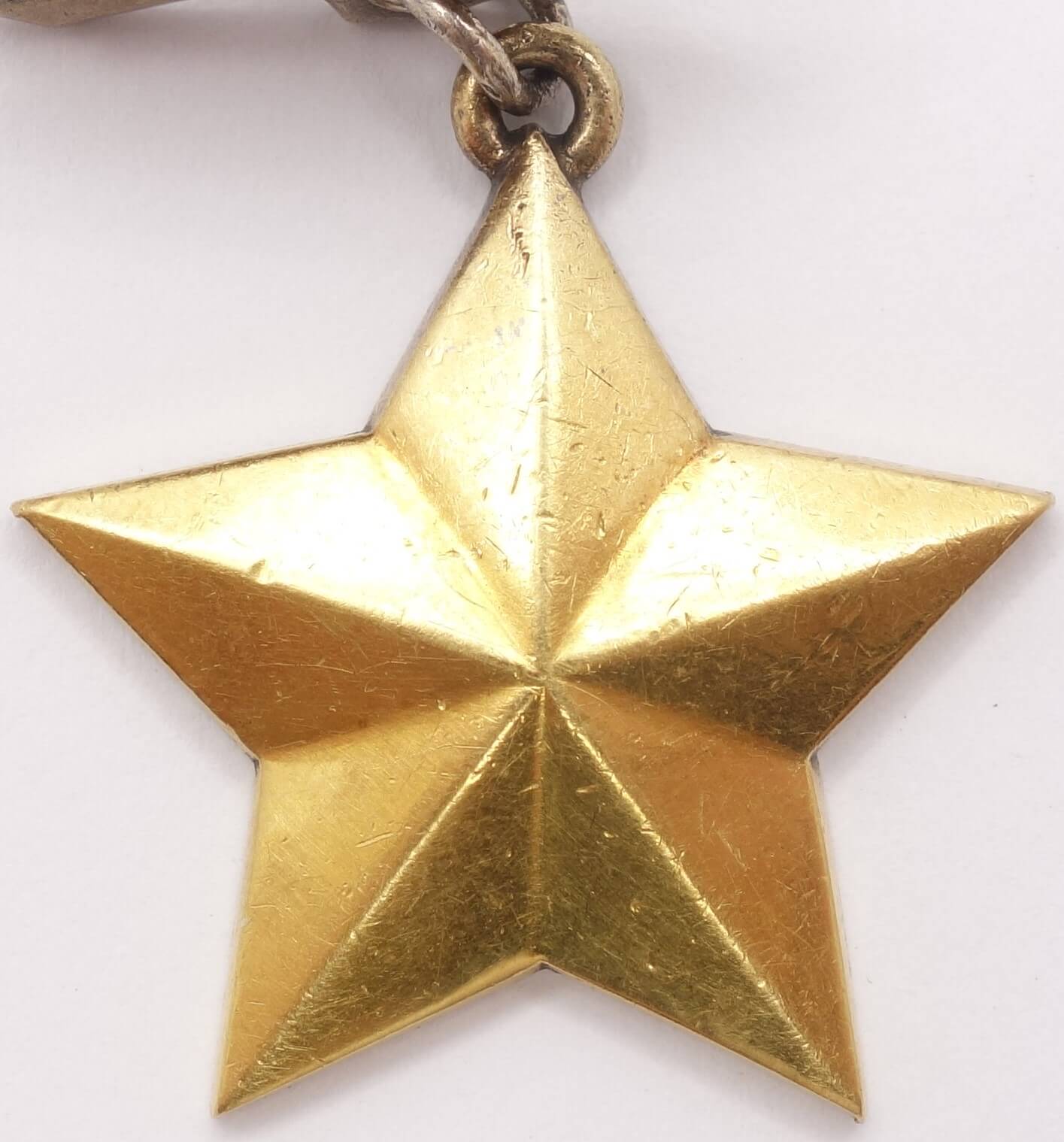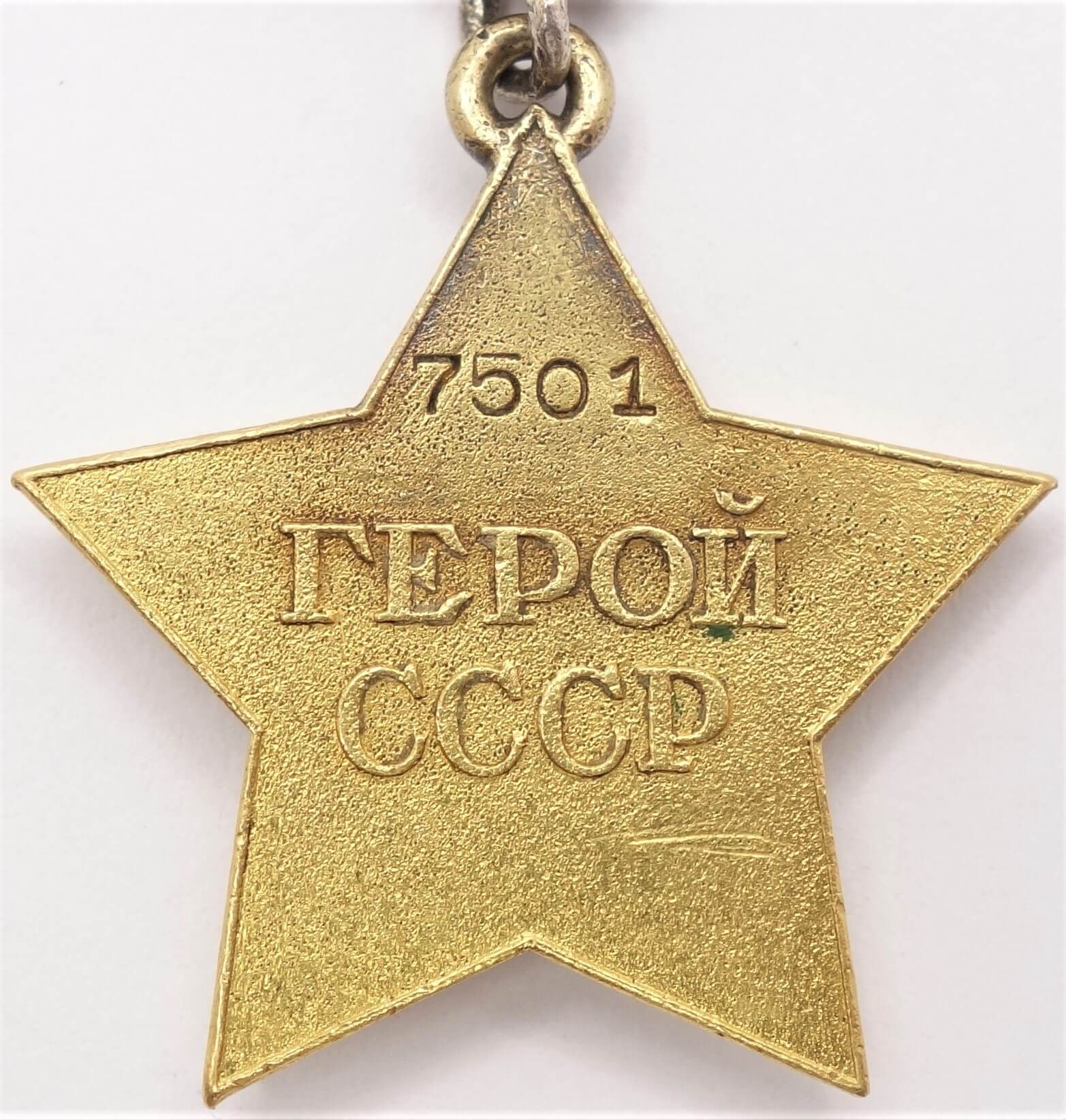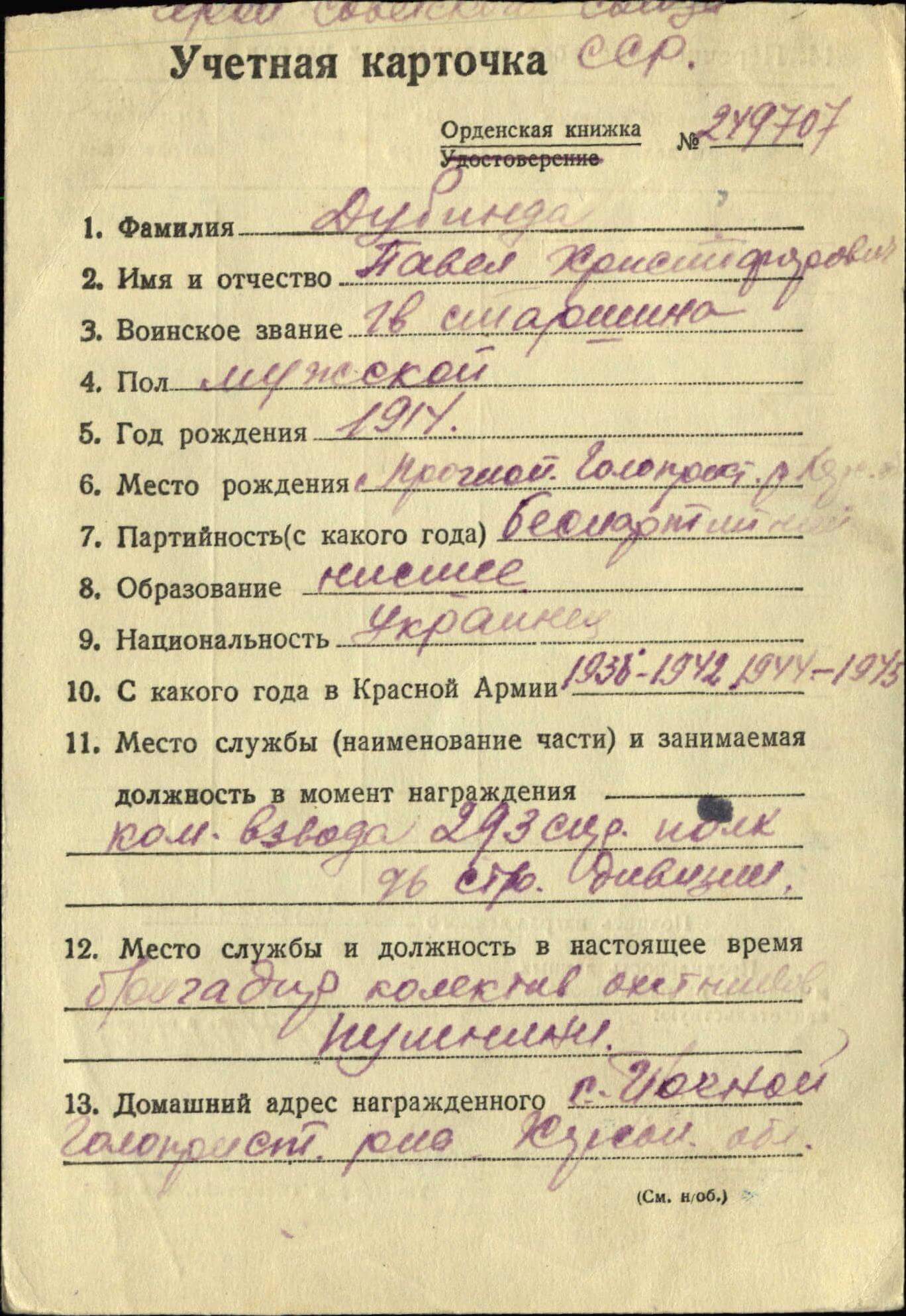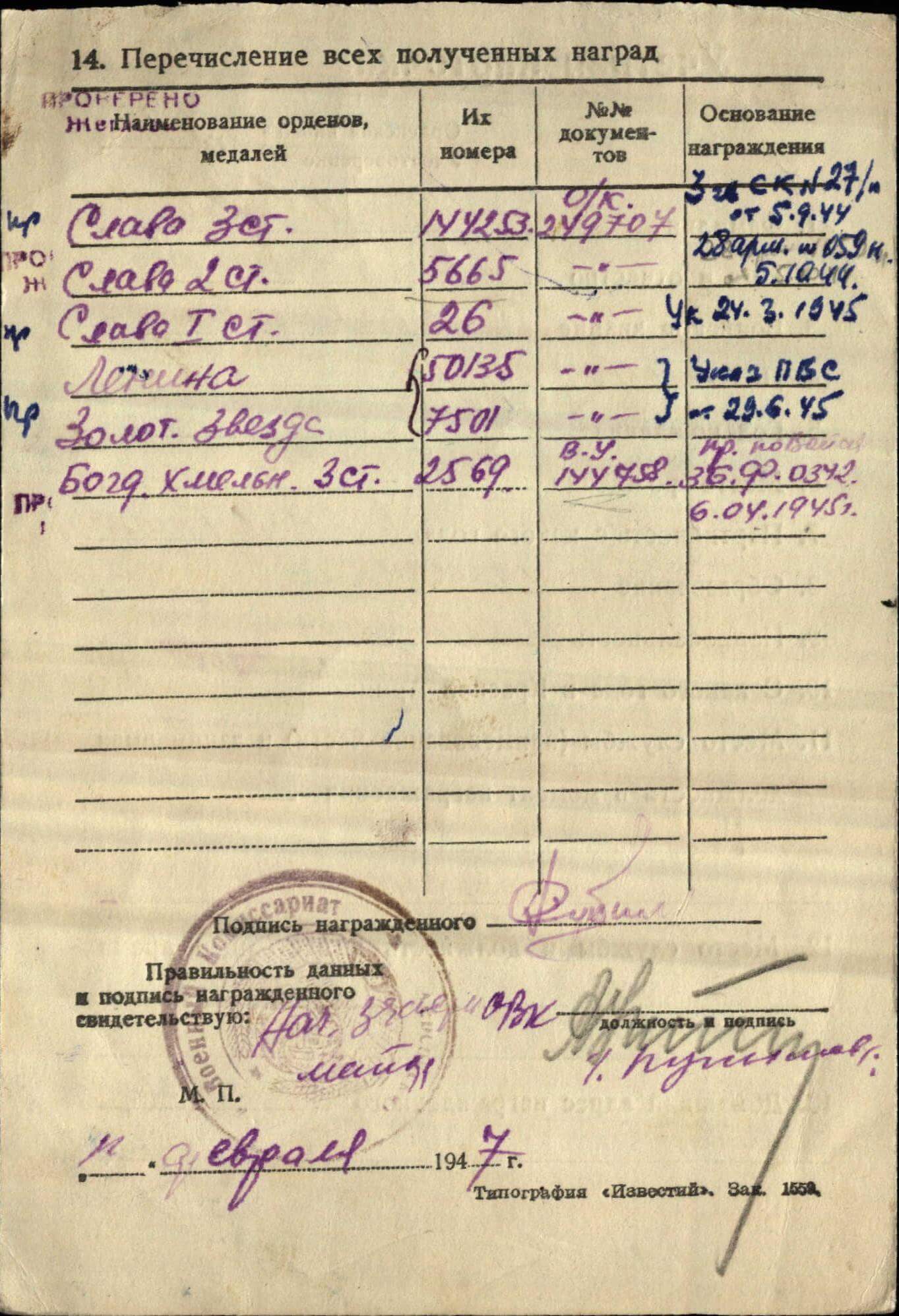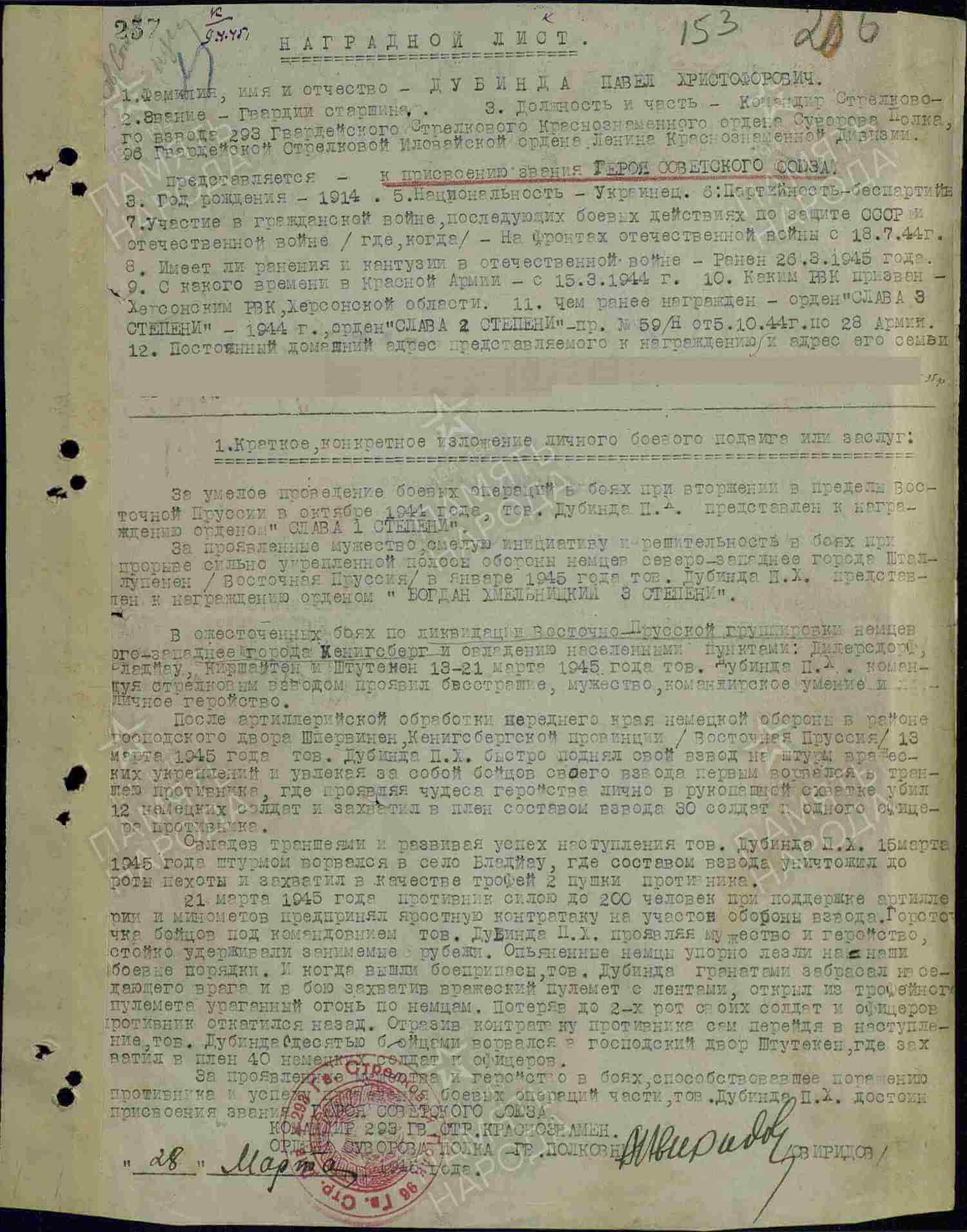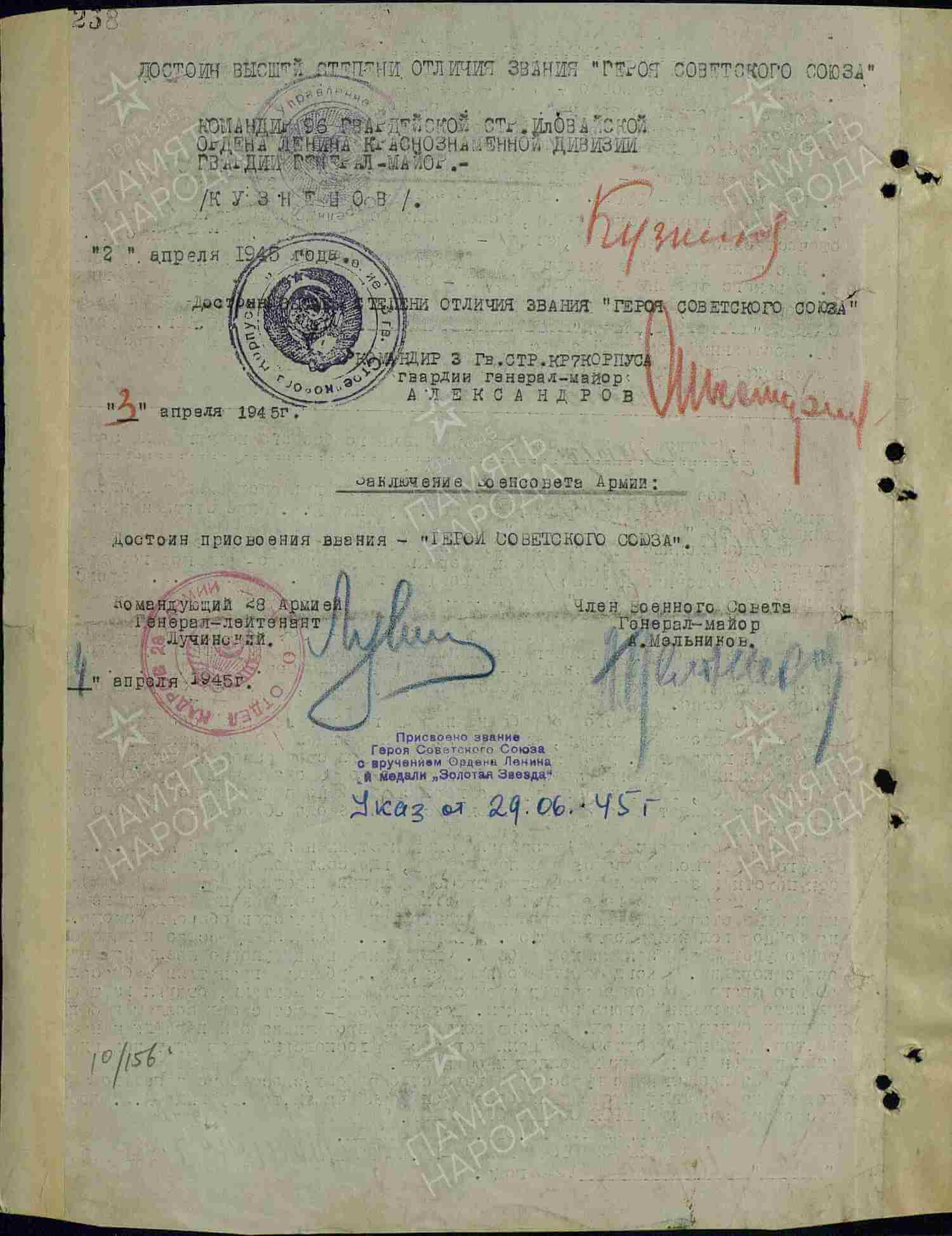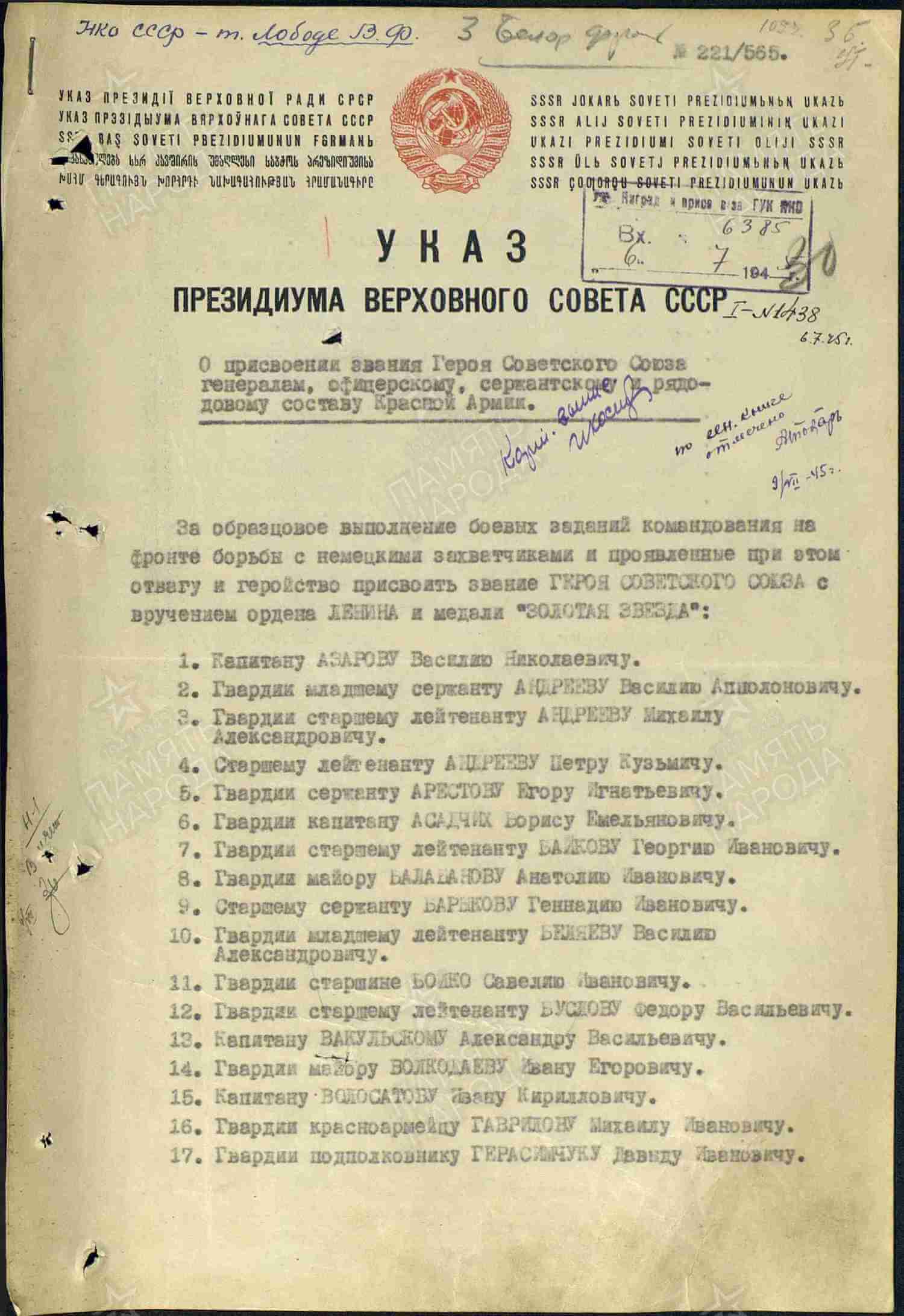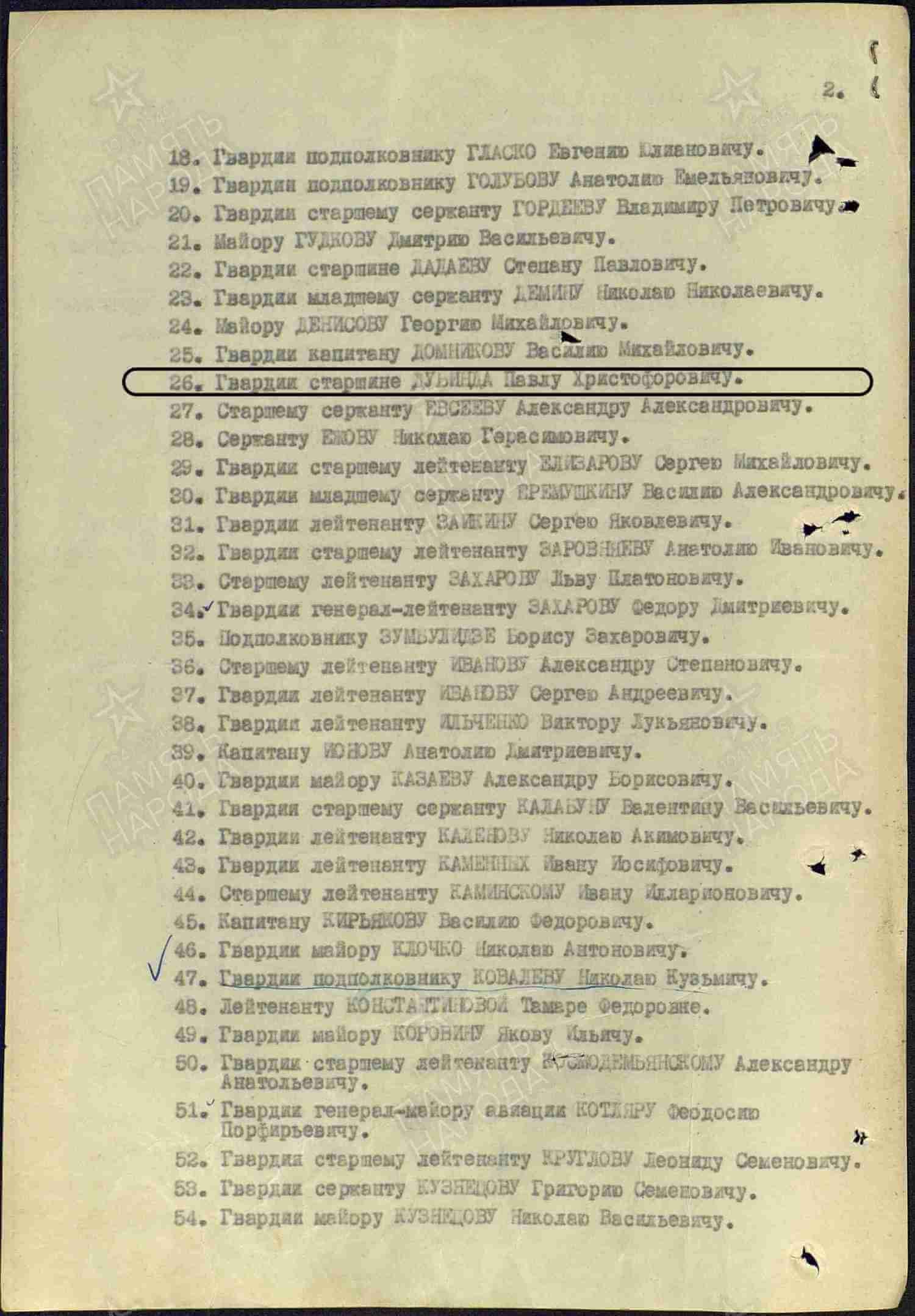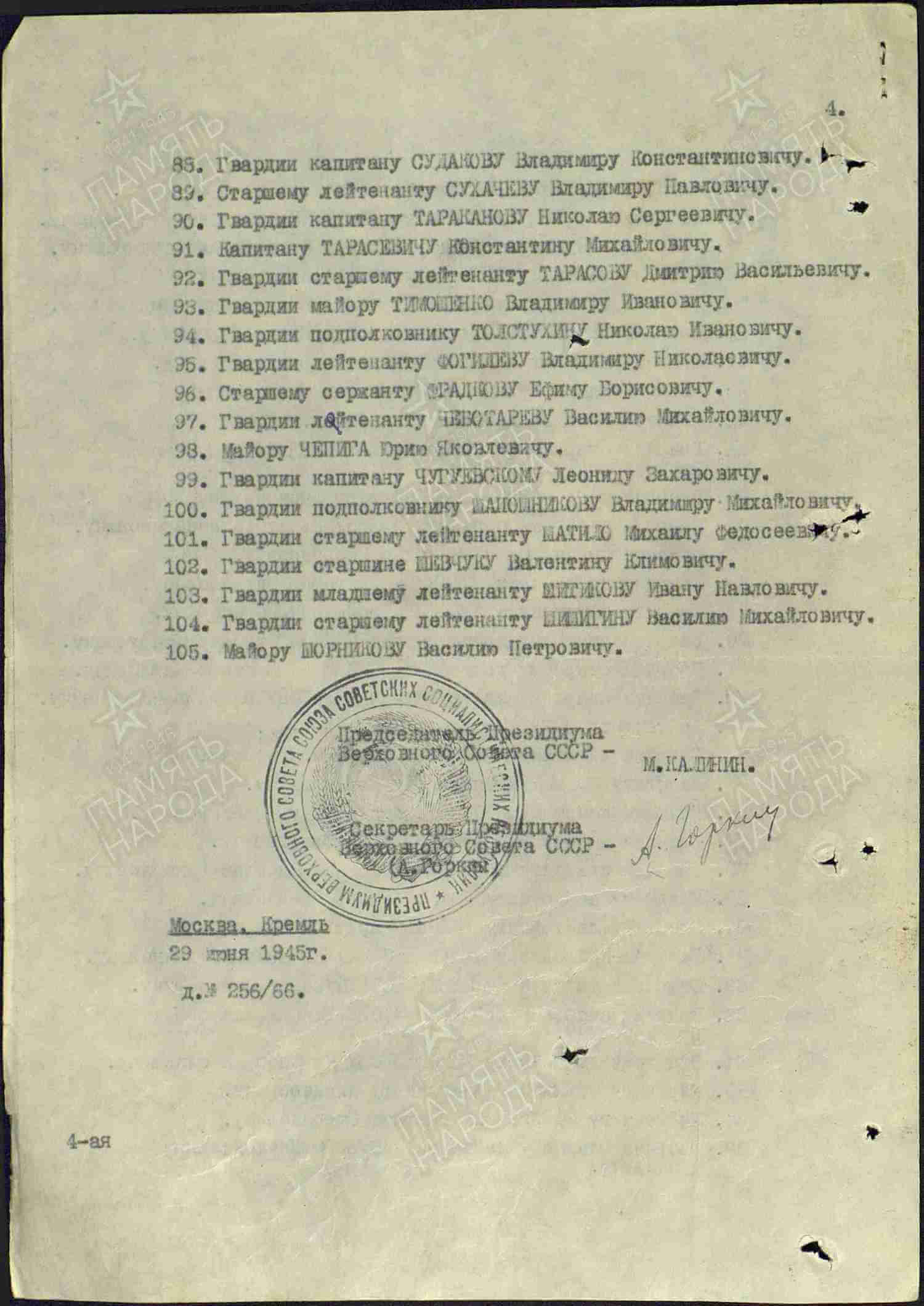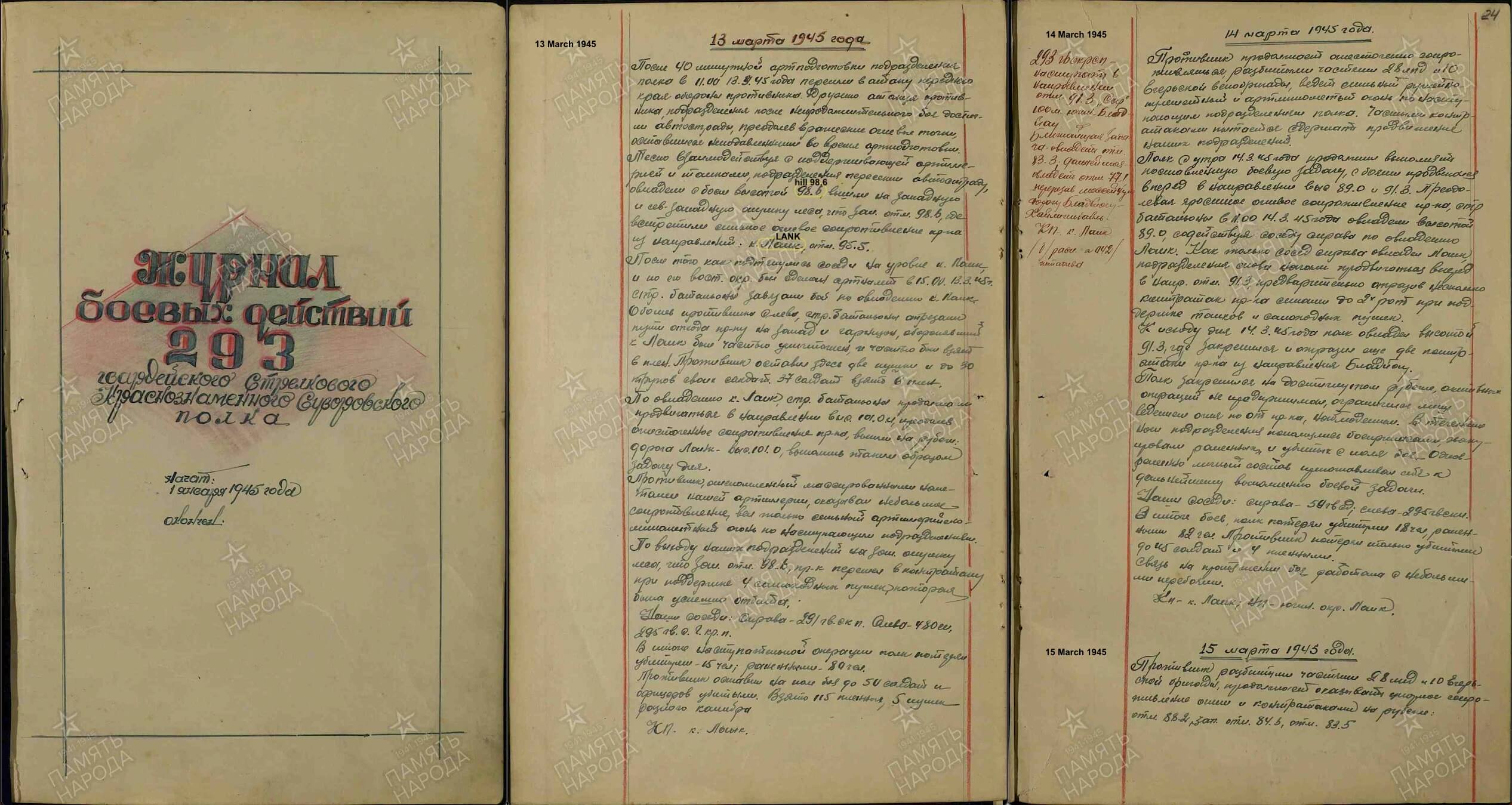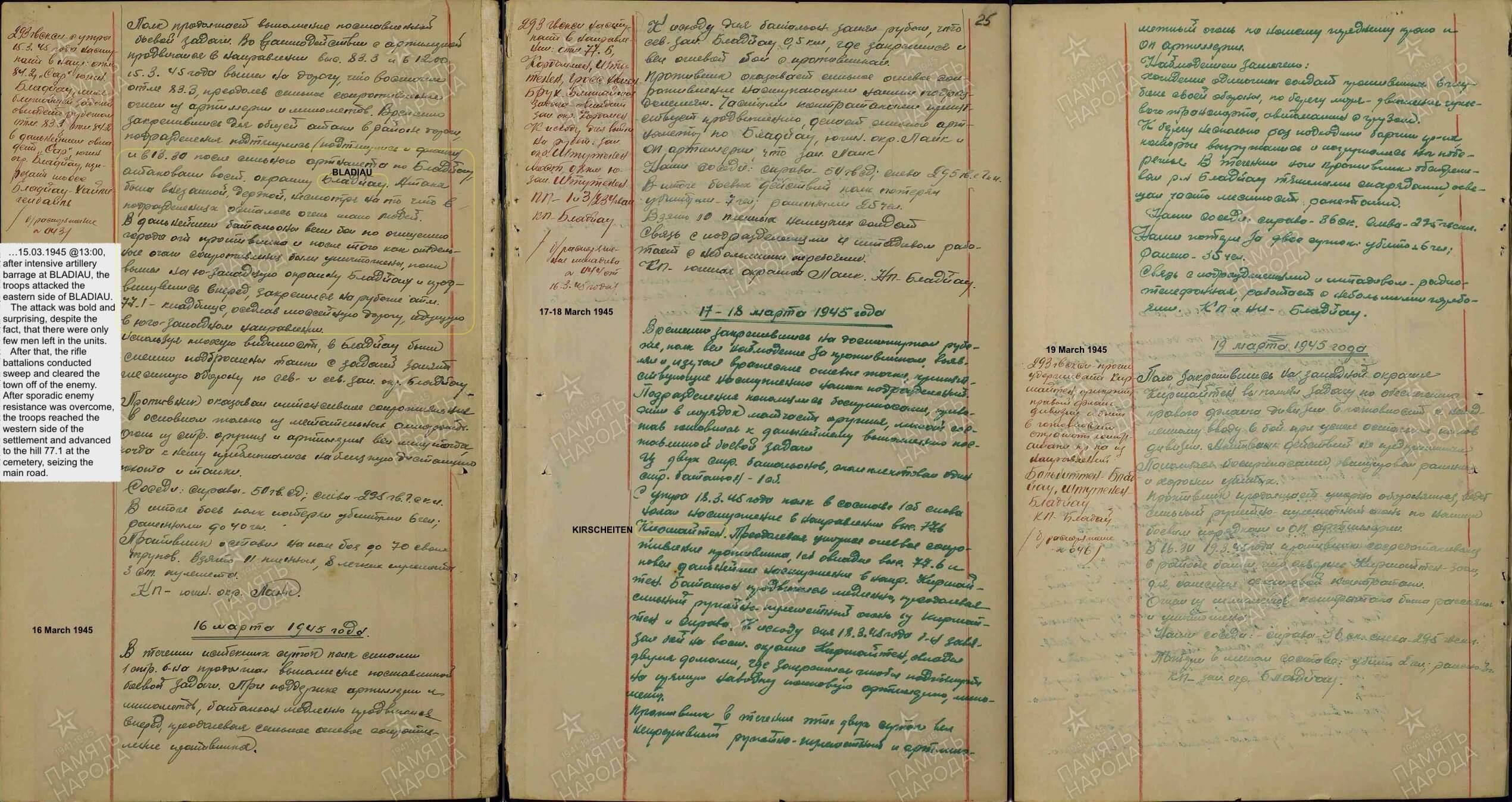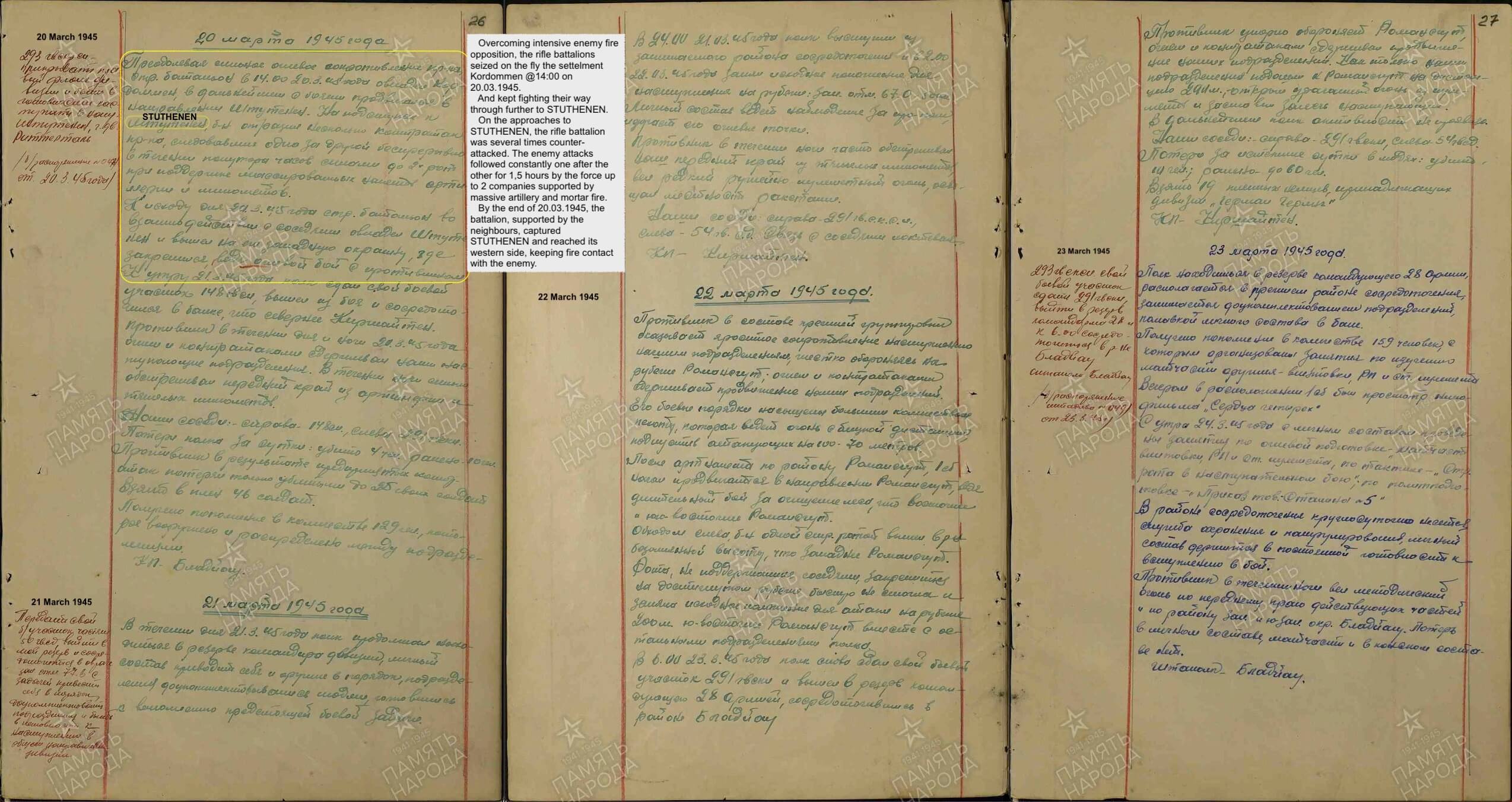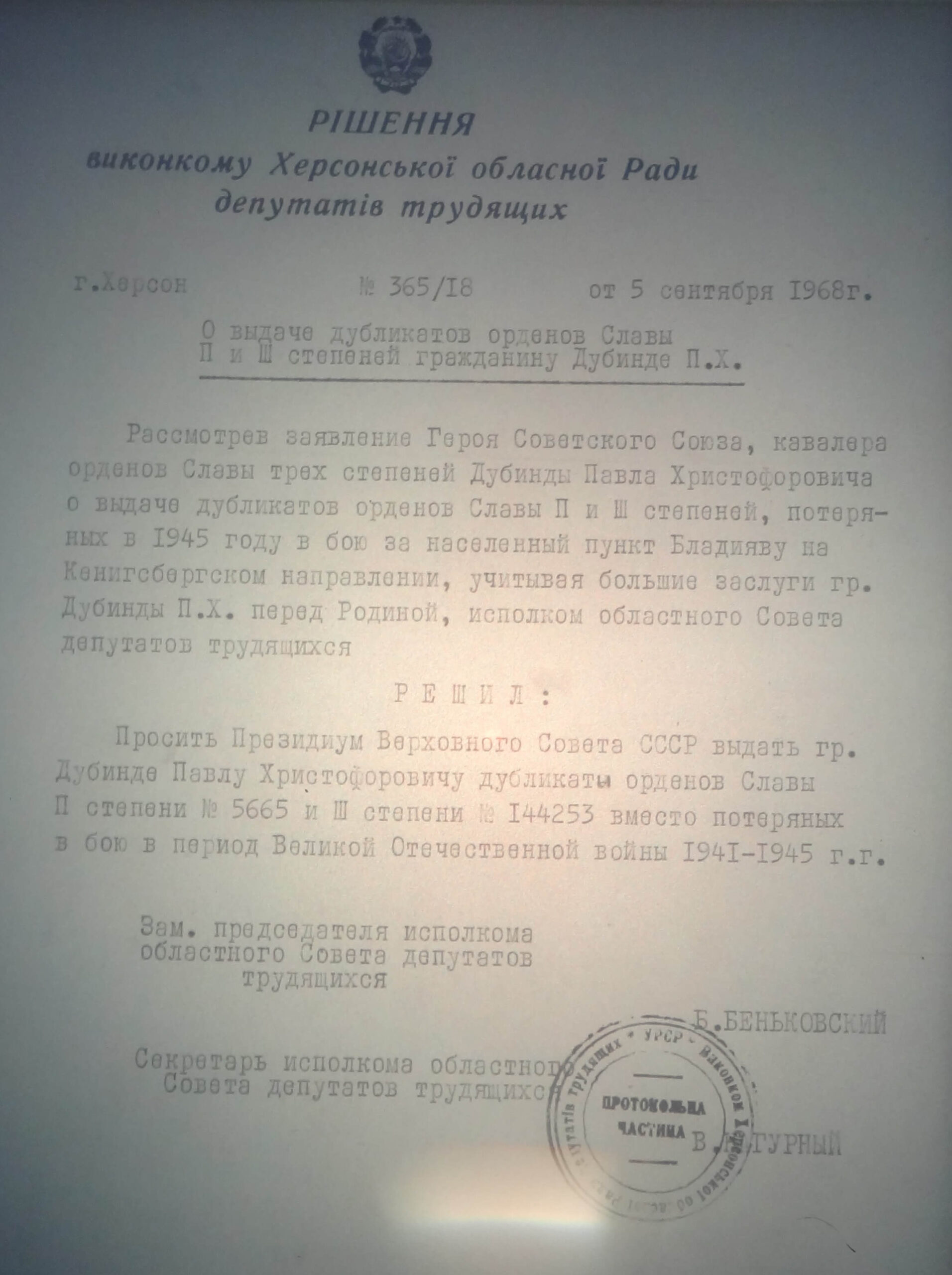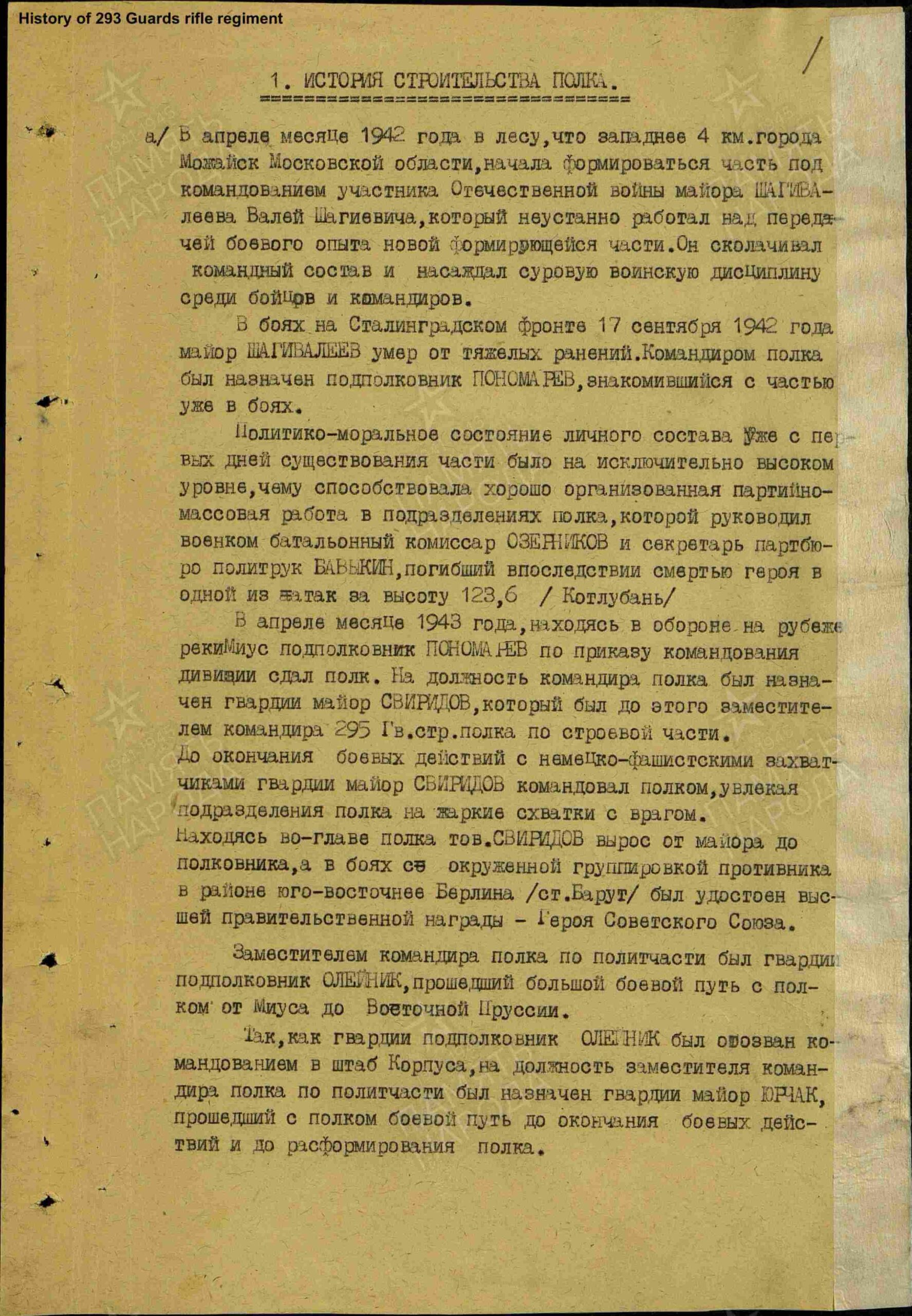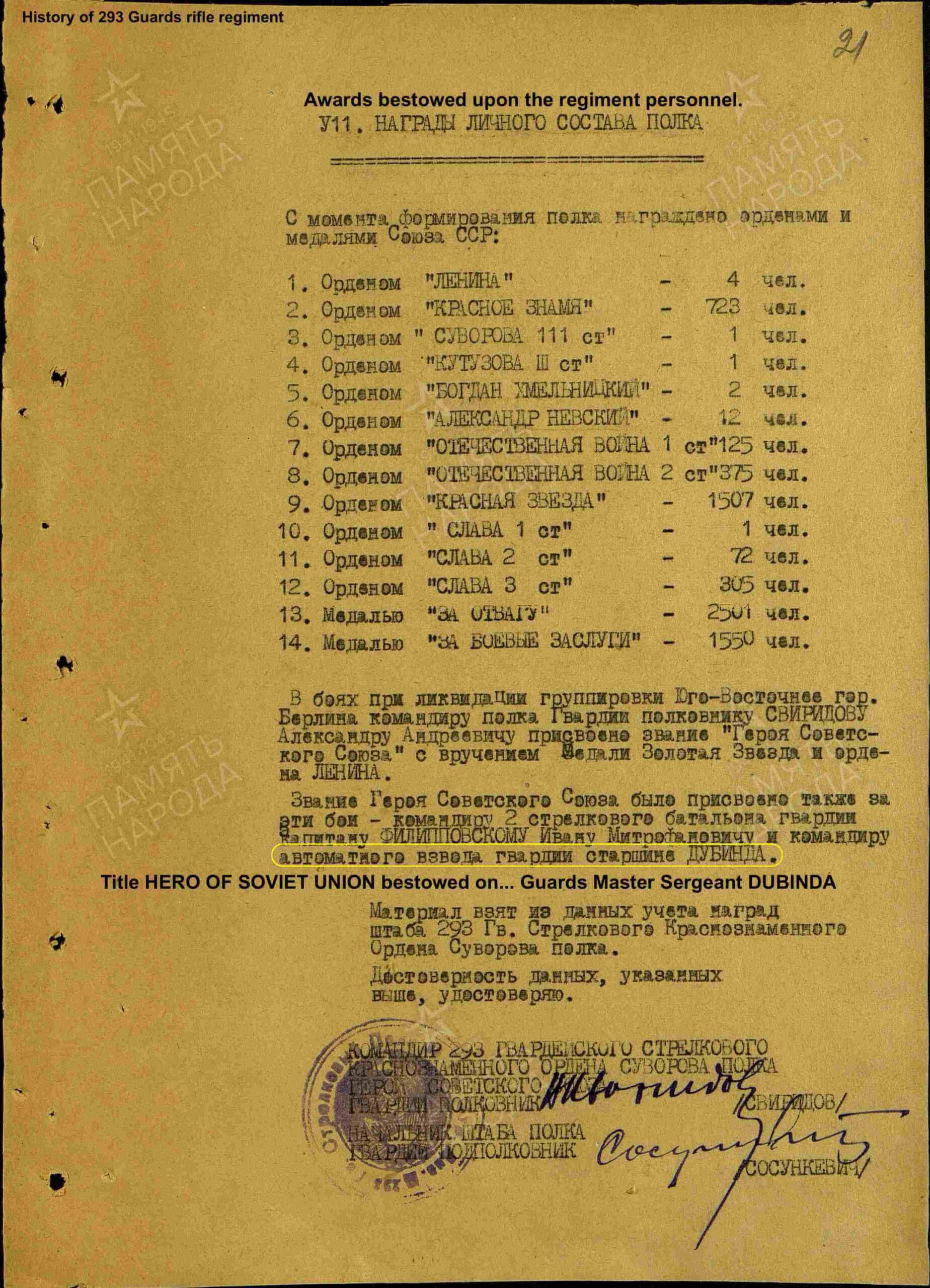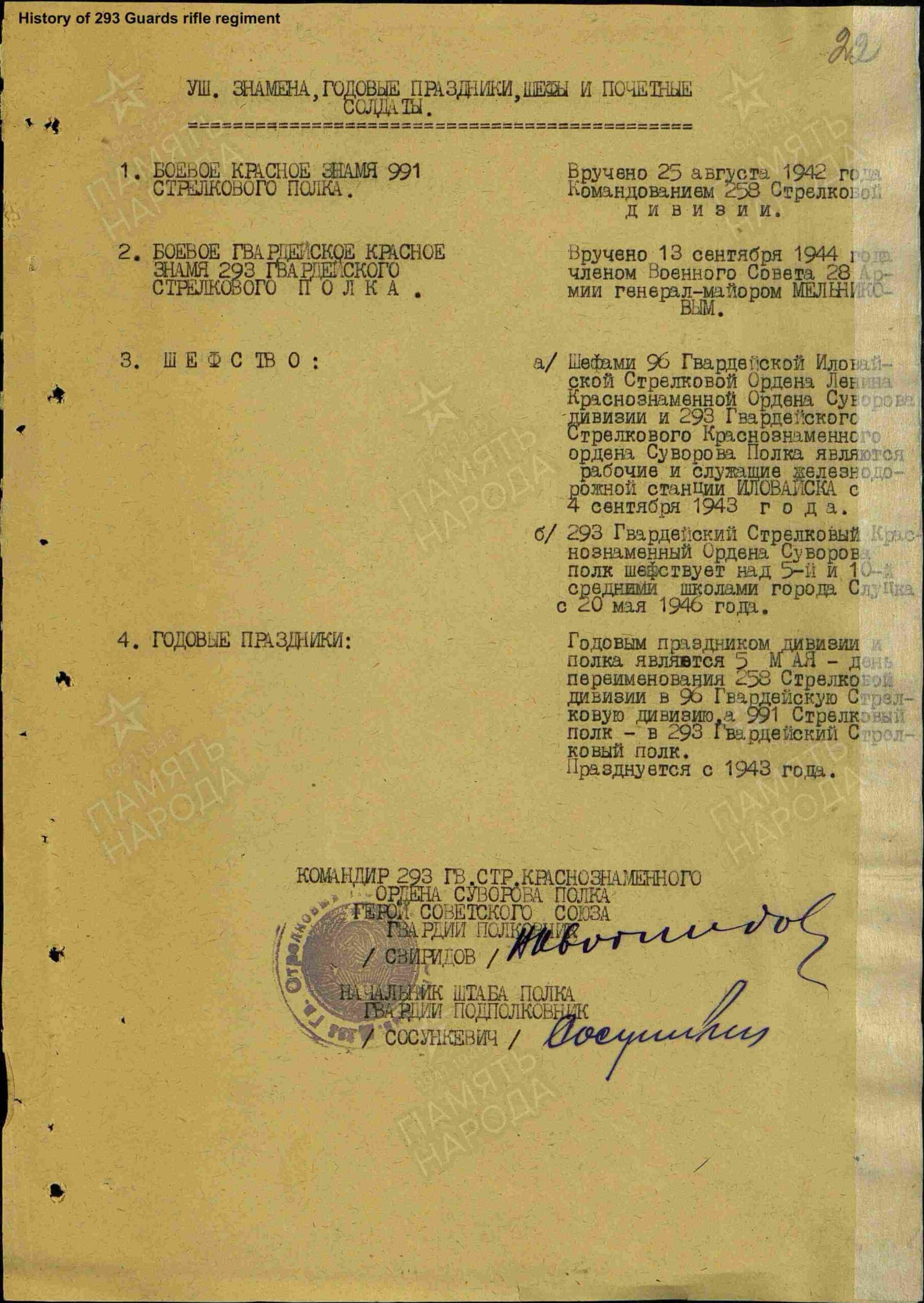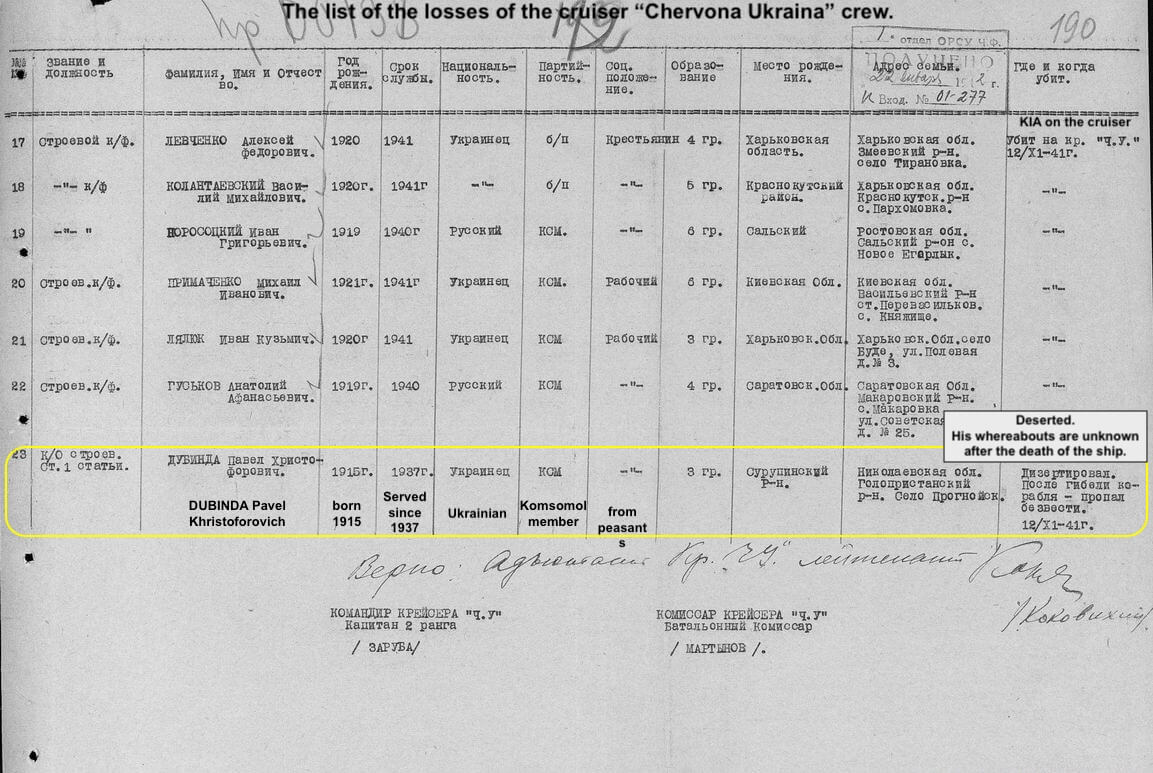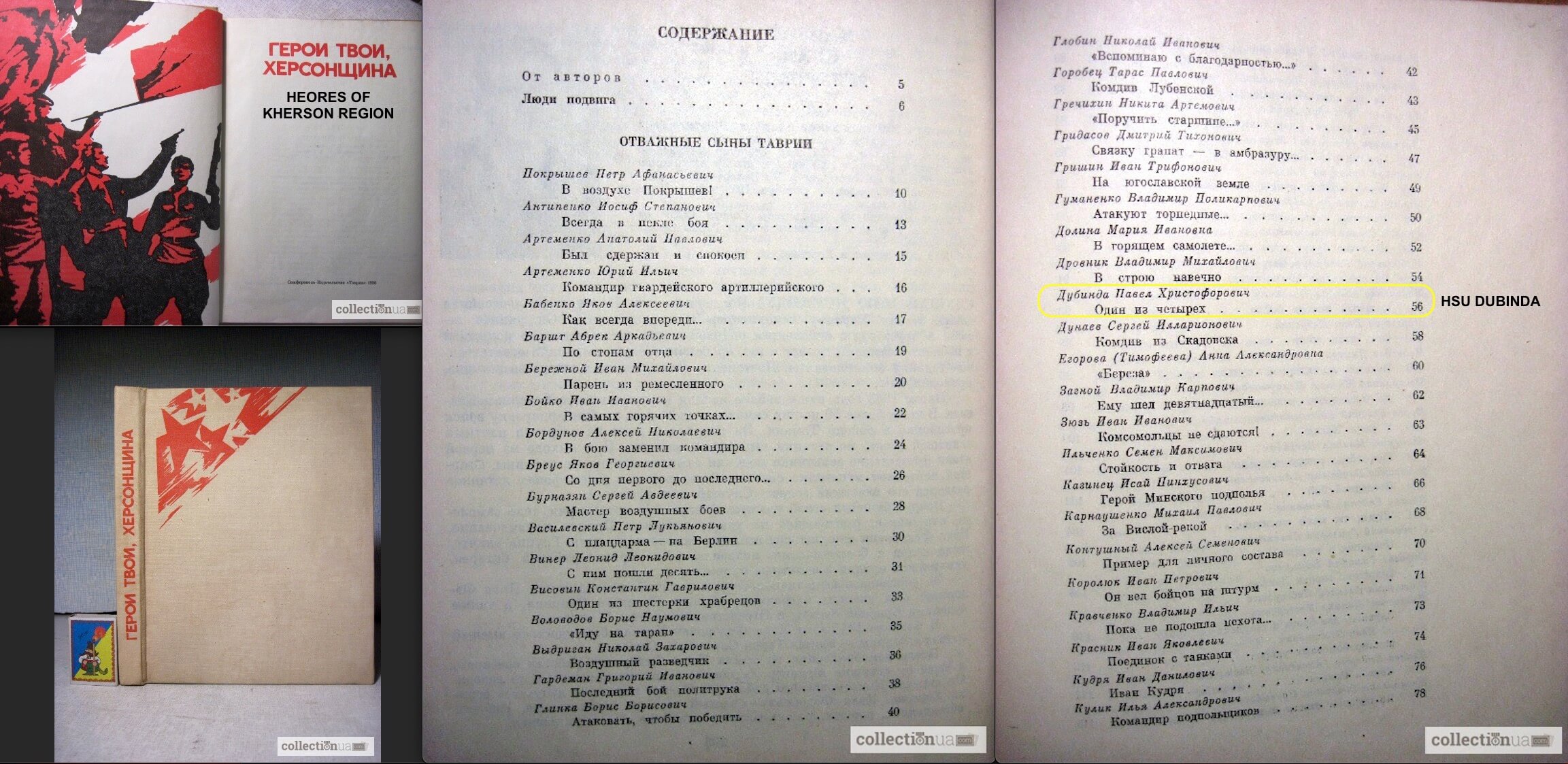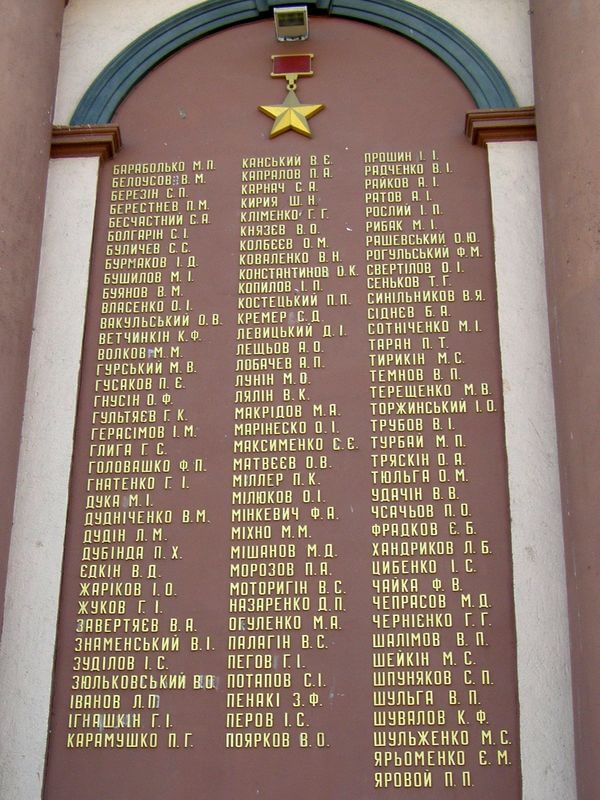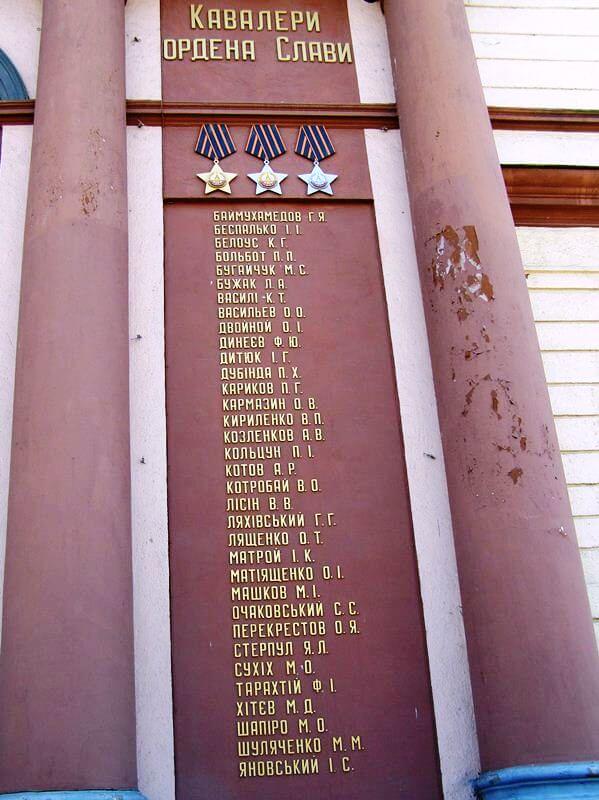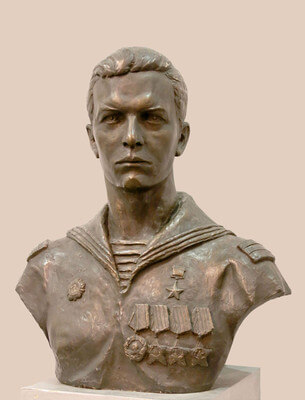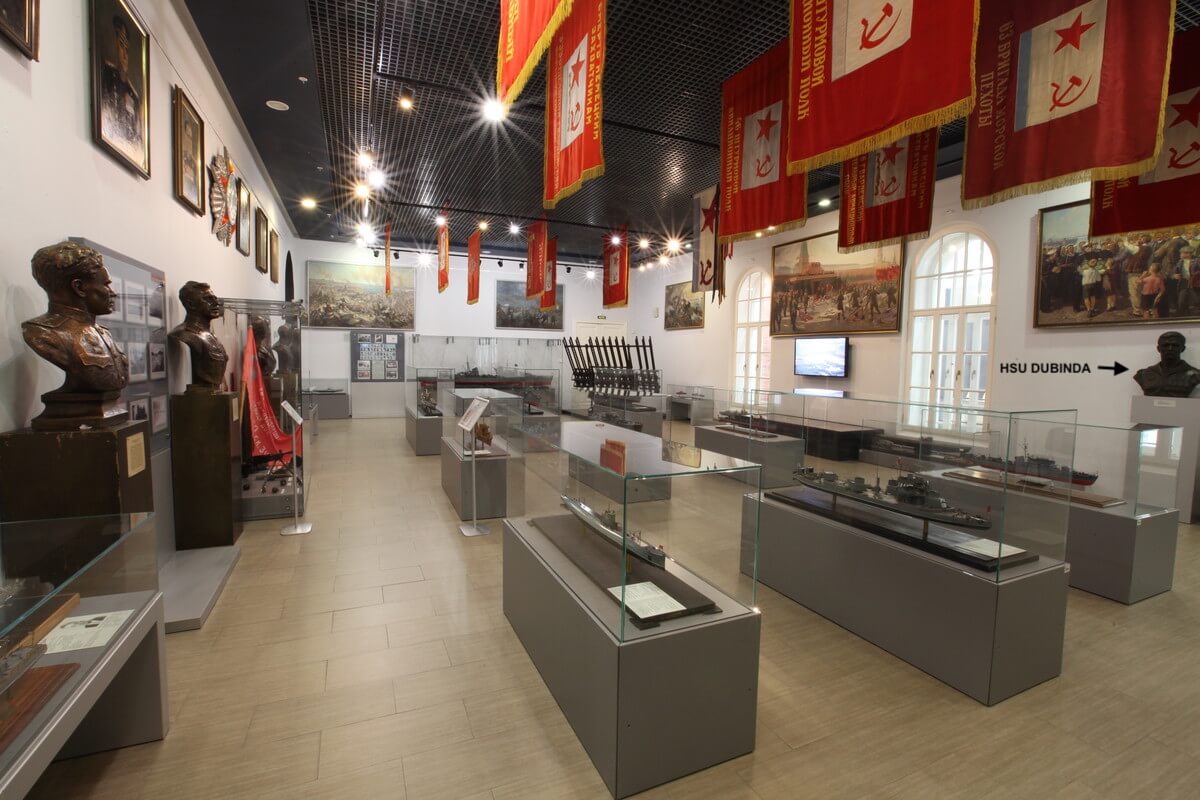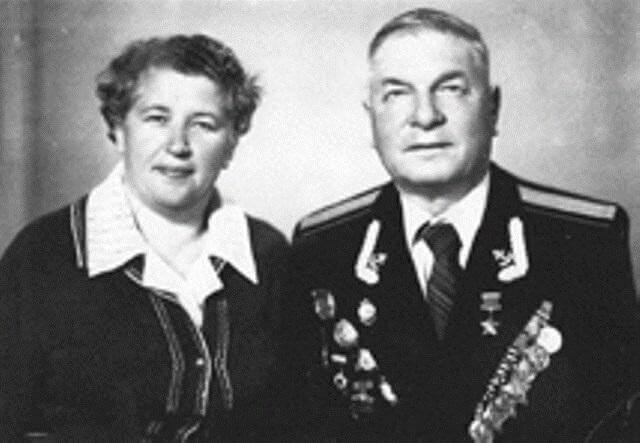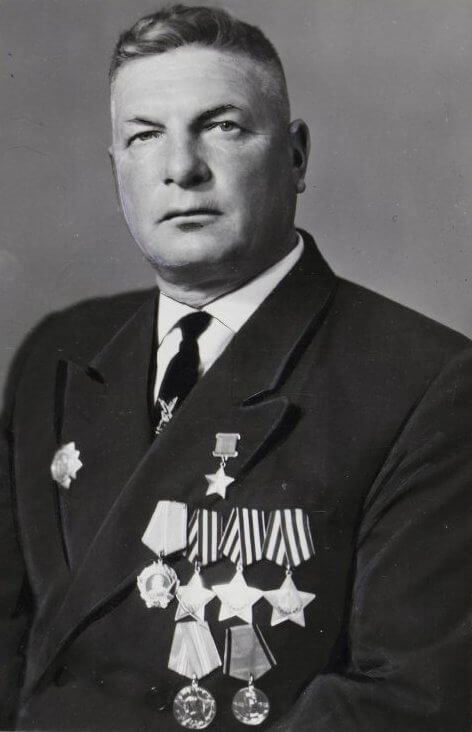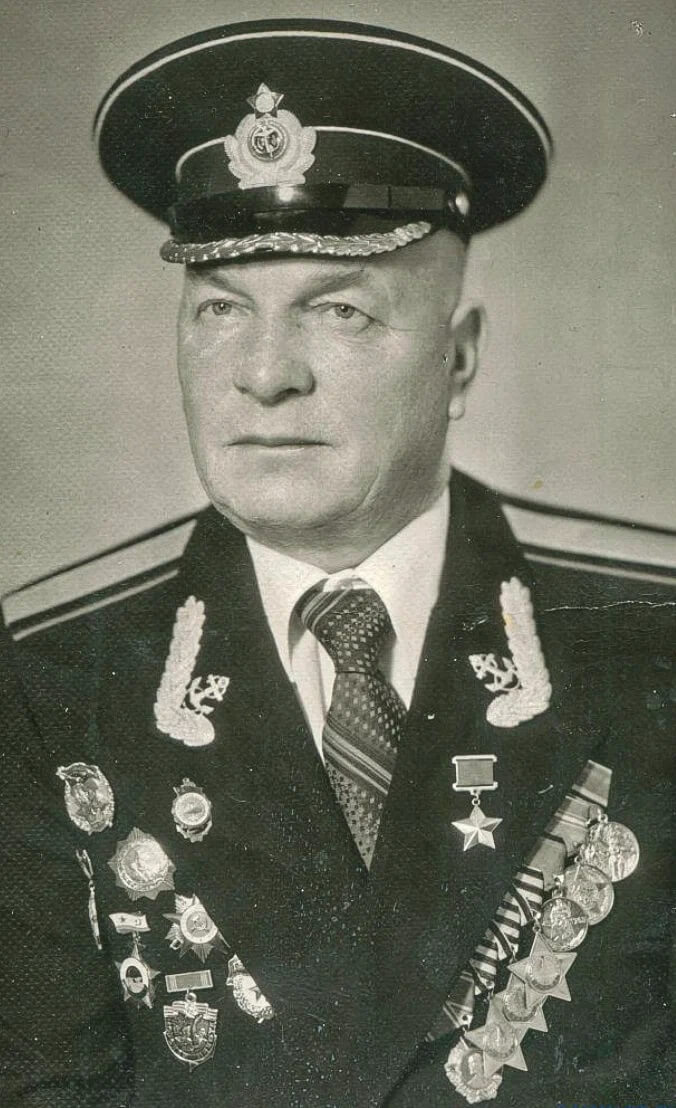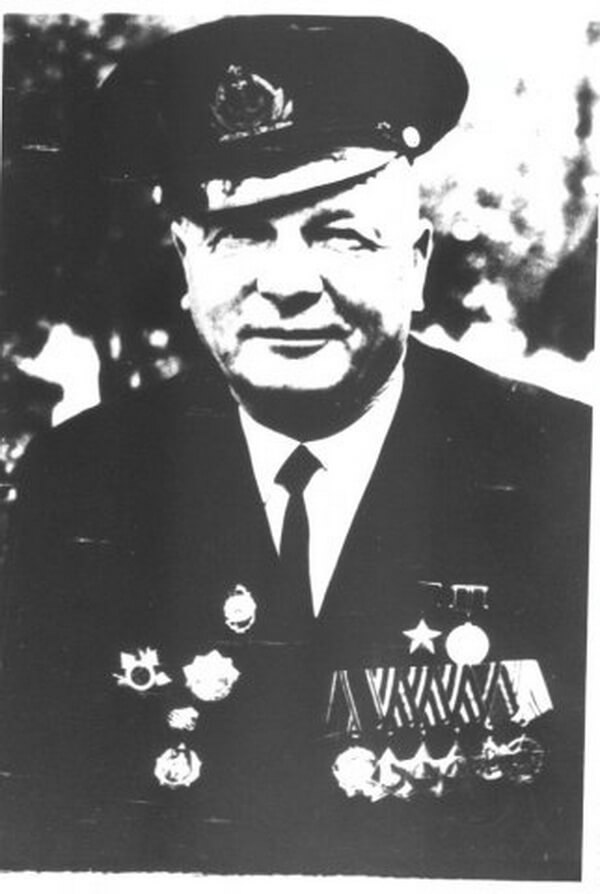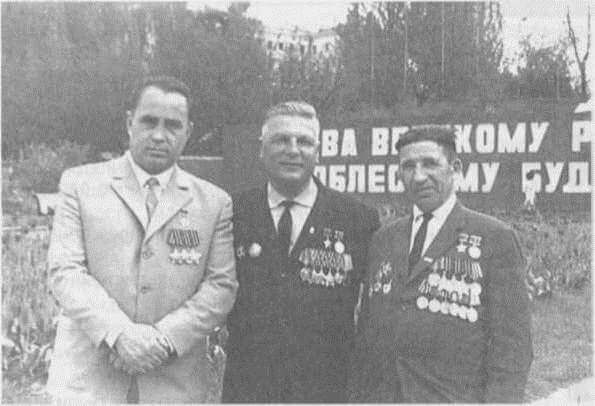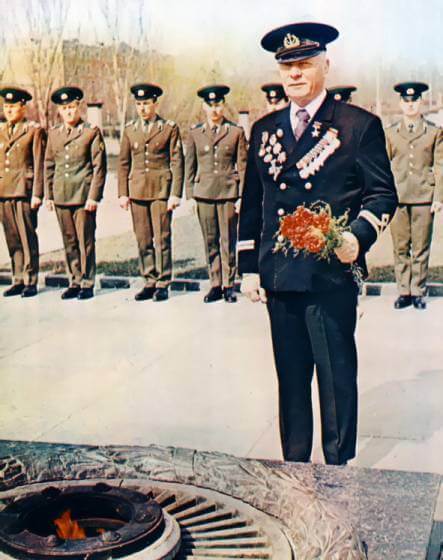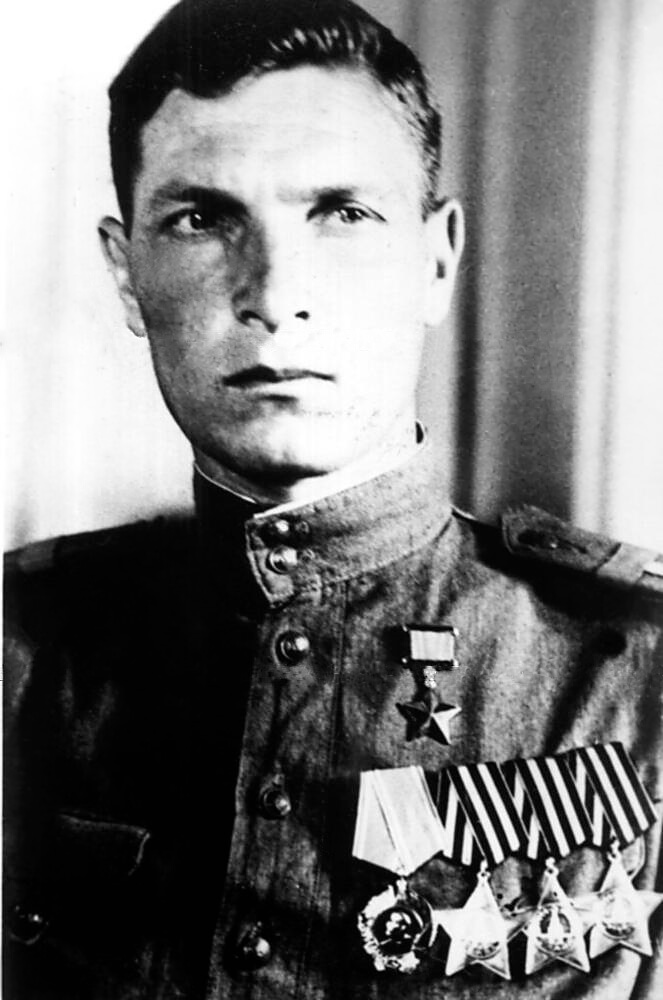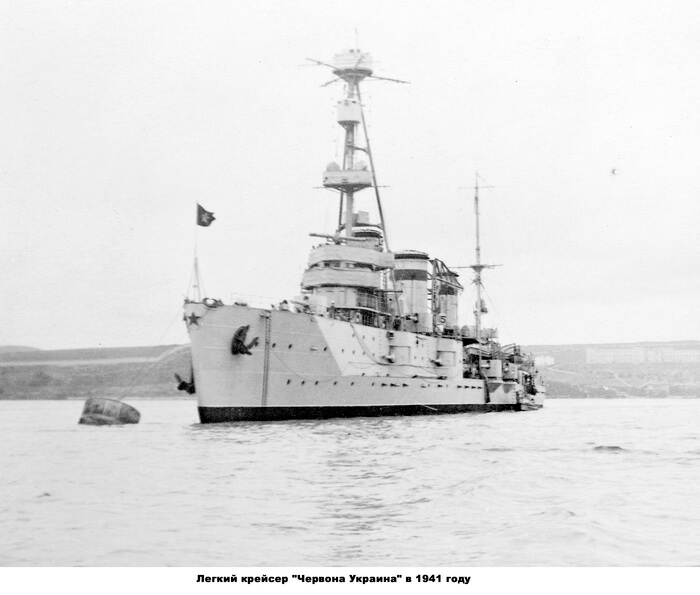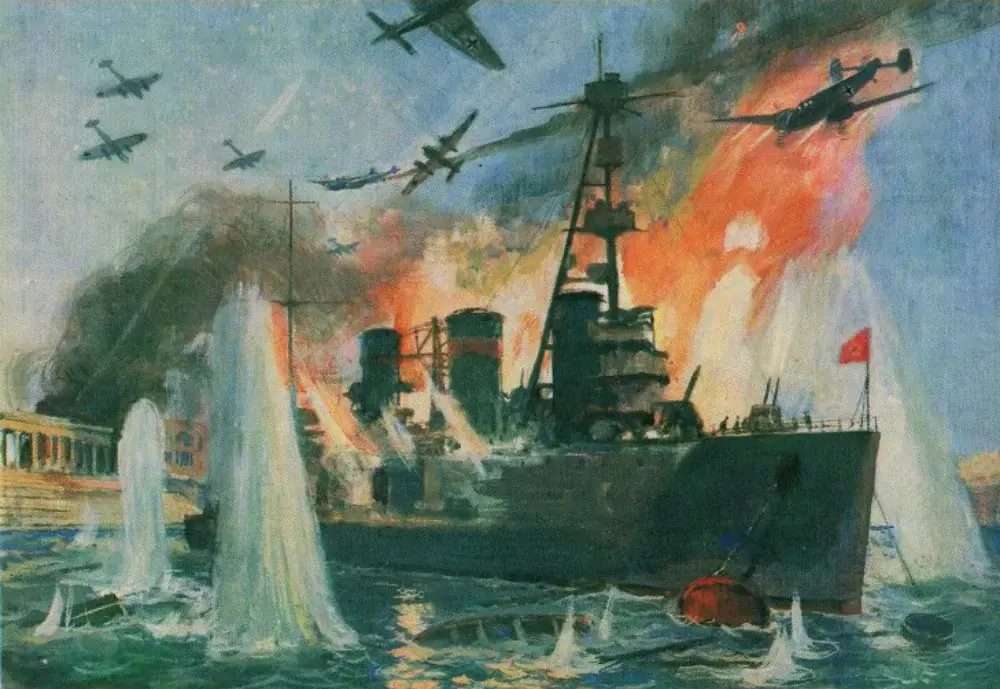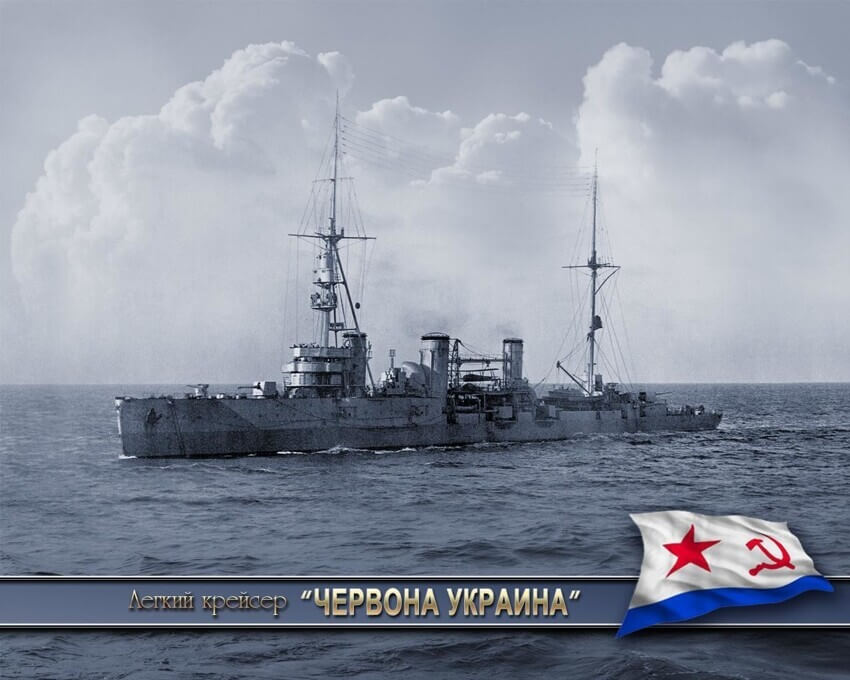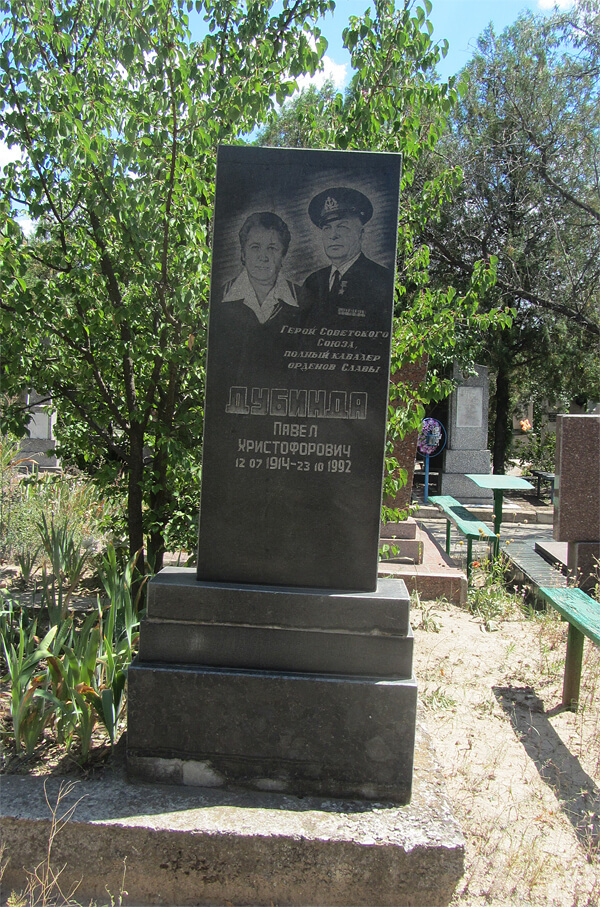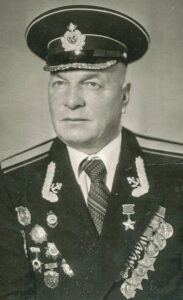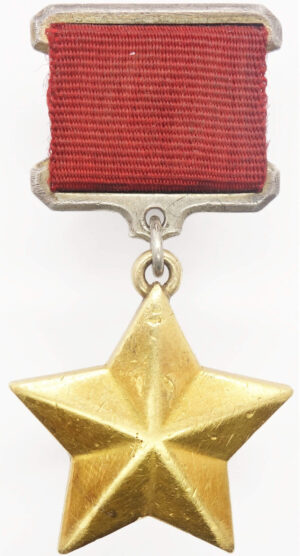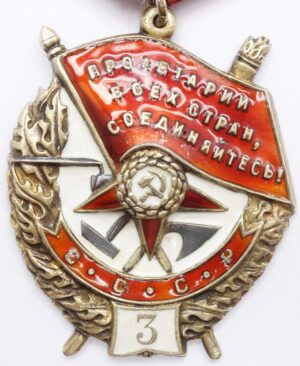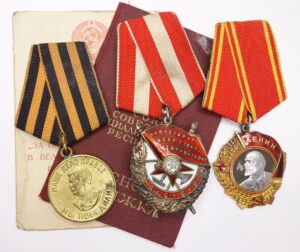Description
Hero of the Soviet Union #7501
Awarded to Guards Master Sergeant Pavel Khristoforovich Dubinda (Павел Христофорович Дубинда)
For being the first to rush into the enemy trenches where exhibiting wonders of human heroism by killing 12 German troops in a hand to hand combat. Shortly after, he captured an enemy machine-gun with bullet belts and opened hail of fire at the enemy killing 2 infantry companies resulting in the retreat of the enemy
Sgt. Dubinda was not ‘just’ awarded the title Hero of the Soviet Union, he was also one of the 4(!) persons who were full cavaliers of the Order of Glory and one of 6(!) full cavaliers being awarded an Order of Bogdan Khmelnitsky
Made of solid 23 carat gold. It measures 32.31 mm in height including its eyelet, 30.65 mm in width and it weighs 20.4 grams without its suspension. The the text Герой СССР (Hero of the USSR) is located at the centre of the reverse right underneath the serial number ‘7501’. The suspension is authentic to the medal and measures 26.43 mm in width at his widest point and 21.50 mm in height without the eyelet.
This gold star is in pristine condition with crisp details and sharp edges. Even the tips of the star have virtually no wear which is quite unusual considering the star is made of pure gold. The lettering is very well defined and its eyelet has the original full thickness on top. Both sides show few contact marks only ad all parts are original. Including the well fitted screwplate, suspension, hexagonal plate and the rectangle plate. Its connection ring has not been cut and the long screw has not been shortened. Its original nut fits perfectly well.
A rare piece with extensive and amazing research!
Brief and specific description of the personal feat or merits
“For effective combat performance in the invasion into the East Prussian territory in October 1944, comrade DUBINDA was recommended for the order “GLORY I CLASS”.
For exhibited courage and bravery, for bold initiative and decisive conduct during the German strong defence breakthrough near the town Stallupönen (East Prussia) in January 1945, comrade DUBINDA was recommended for order “BOGDAN KHMELNITSKY III CLASS”.
Comrade DUBINDA commanded a rifle platoon and exhibited fearless attitude, personal courage and bravery, and military leadership skills in the bloody fighting for elimination of the German force in East Prussia west of the Königsberg city and in capturing the settlements Diedersdorf, Bladiau, Kirscheiten, Stuthenen during 13-21 March 1945.
After our opening artillery barrage against the German defences near the mansion Sperwienen (Koenigberg province in East Prussia) on 13 March 1945, comrade DUBINDA quickly raised his platoon into assault and attacked the enemy positions. Drawing his men to follow him, he himself was the first to rush into the enemy trenches, where, exhibiting wonders of human heroism, he killed 12 German troops in a hand to hand combat. He and his platoon captured 30 enemy troops and 1 officer in this engagement.
Having captured the enemy trenches, comrade DUBINDA exploited the success, he assaulted and captured the village Bladiau on 15 March 1945, where together with his platoon, he eliminated up to a company of enemy troops and captured 2 enemy cannons.
On 21 March 1945, an enemy force of up to 200 troops supported by artillery and mortars went into a decisive attack on the sector defended by his platoon. A few men under DUBINDA’s command courageously and heroically held their line. Drank Germans stubbornly pressed forward at our positions. And when the ammunition was depleted, comrade DUBINDA attacked the attacking enemy with hand grenades. Then he captured a enemy machine-gun with bullet belts and opened hail of fire at the enemy. Having lost up to 2 infantry companies, the enemy retreated. Having fended off the enemy attack, he himself attacked the enemy together with 10 other riflemen. They assaulted and captured the mansion Stuthenen, where they imprisoned 40 German troops.
For exhibited courage and bravery, which assisted to defeat the enemy, comrade DUBINDA deserves to be bestowed with the title “HERO OF SOVIET UNION”.”
The full translation of the archival research can be read below:
Biography on Sgt. Dubinda:
Dubinda Pavel Khristoforovich – company sergeant of the 293rd Guards Rifle Regiment of the 96th Guards Rifle Division of the 28th Army of the 3rd Belorussian Front, Guards Sergeant; one of the 4 full knights of the Order of Glory, awarded the title of “Hero of the Soviet Union”.
He was born on July 12th 1914 in the village of Prognoy, now the village of Heroyske, Holoprystan district, Kherson region of Ukraine. After graduating from 7 classes, he worked in a fish collective farm.
In the Navy since 1936. Participant of the Great Patriotic War since June 1941. He served on the cruiser “Chervona Ukraina” of the Black Sea Fleet, and after the sinking of the cruiser in November 1941, in the 8th Marine Brigade. During the defense of the city of Russian military glory, Sevastopol (since 1965 a hero city) he was severely shell-shocked and captured, escaped and from March 1944 served in the ranks of the Red Army in the 293rd Guards Rifle Regiment.
On August 8th 1944, the commander of the detachment (293rd Guards Rifle Regiment, 1st Belorussian Front) of the Red Army Guards Dubinda was involved in the battle for the village of Skoryłupka (Sokołów Podlasie County, Poland) under enemy fire was the first to break into the enemy trench, with an assault rifle and grenades he killed seven Hitlerites.
On September 5th 1944, the Red Army soldier Pavel Khristoforovich Dubinda was awarded the Order of Glory of the 3rd degree (No. 144253).
On August 20th 1944, in the battles for the railway station and the village of Mostówka (Wyszków County, Warsaw Voivodeship, Poland), Junior Sergeant Dubinda led a platoon, drove the enemy from the station, personally killed more than ten Hitlerites. Being wounded he remained in the ranks, replaced the retired company commander and ensured the fulfilment of the unit’s combat mission.
On October 5th 1944, Guards Junior Sergeant Pavel Khristoforovich Dubinda was awarded the Order of Glory of the 2nd degree (No. 5665).
On October 22nd-25th 1944, in the battles on the outskirts of the city of Stallupönen (East Prussia, now the city of Nesterov, Kaliningrad region), the company sergeant Major Dubinda, commanding a platoon (3rd Belorussian Front), captured an advantageous line. Building on this success, rifle units took possession of the city. In hand-to-hand combat, he personally defeated four enemy soldiers and captured an officer.
By degree of the Presidium of the Supreme Soviet of the USSR of March 24, 1945, for the exemplary performance of command tasks in the battles with the Nazi invaders of the Guard, Sergeant Major Pavel Khristoforovich Dubinda was awarded the Order of Glory of the 1st degree (No. 26), becoming a full cavalier of the Order of Glory.
On March 21st 1945, a platoon under the command of Guards Sergeant Major Pavel Dubinda in the battles south-west of Königsberg (now Kaliningrad) repelled counterattacks by superior enemy forces. When the ammunition ran out, Dubinda captured an enemy machine gun and opened fire on the enemy, forcing him to retreat.
By degree of the Presidium of the Supreme Soviet of the USSR of June 29th 1945, for the exemplary performance of the combat tasks of the command at the front of the fight against the Nazi invaders and the courage and heroism of the Guard shown at the same time, Sergeant Major Pavel Khristoforovich Dubinda was awarded the title of Hero of the Soviet Union with the award of the Order of Lenin and the Gold Star Medal (No. 7501).
After the war guards sergeant Major Dubinda demobilized. He returned to his homeland. He served as a boatswain on the ship of the Antarctic whaling flotilla Slava. He lived in the administrative center of the Kherson region of Ukraine – the city of Kherson, where he died on October 22nd, 1992. He was buried in the city of Kherson at the Kamyshan Cemetery.
He was awarded the Order of Lenin, the Order of Bogdan Khmelnitsky of the 3rd degree, the Order of the Patriotic War of the 1st degree, the Order of Glory of the 1st, 2nd and 3rd degrees, medals.
A passenger ship of the Ukrainian River Fleet bears his name.
And from dzen.ru:
Boatswain Dubinda. A year and a half of captivity, three Orders of Glory and one star of the Hero of the Soviet Union
July 20, 2021
The story of one of the most epic heroes of the Great Patriotic War should begin from an unexpected moment.
On November 12, 1941, the Germans bombed the cruiser Chervona Ukraina, which was harboured in Sevastopol. The cruiser sank, part of the crew who survived joined the land units. And in the list of irretrievable losses there was an entry that the sergeant major Dubinda, Pavel Khristoforovich
“Deserted after the sinking of the ship – missing”
In fact, the recording was made in the confusion of what was happening in besieged Sevastopol. Sergeant Major Dubinda, of course, did not desert anywhere, but ended up in the 8th Marine Brigade. In it he defended Sevastopol and he was captured, along with thousands of other soldiers, officers and sailors who were not taken out of the city.
When captured, Pavel Dubinda went through several concentration camps and wherever he was he planned to escape until his attempts were successful. In March 1944, after inspections, he again found himself in the Red Army in August 1944 as part of the 293rd Guards Rifle Regiment. And there he showed himself to be a real fighter, and the commanders – not looking at the fact that the fighter was in captivity – did not value his exploits to their full extend. It is believed that all those who were in captivity, if not considered second-class people, were treated with suspicion. But the inexorable statistics of awards and the history of different people during the war years show that not everything with this was unambiguous in fact.
So, on August 8th, 1944, during the battle for one of the Polish villages, the commander of the Dubinda detachment was the first to break into the enemy trench and made a rustle there, laying down several Germans. He was deservedly presented to the Glory 3rd class.
Just a few days after the award ceremony
“… In the battles for the railway track on the outskirts of the station Mostówka … On August 20, 1944, Comrade P.H. Dubinda, temporarily commanding a rifle platoon, was the first to knock the Germans out of the defensive junction with a rapid attack and straddle the railway… Being wounded, Comrade Dubinda did not leave the battlefield and continued to remain in the ranks, and when the company commander was out of action, Comrade Dubinda took command and contributed to the task of capturing the village of Mostówka…”
This, as you understand, is from the award list for the next award -Order of Glory 2nd class. The Red Army is moving forward to the West. And the 293rd Guards Rifle Regiment, and comrade Dubinda – too. In October 1944, the regiment broke through the German defenses in East Prussia:
“… On October 21-25, 1944, in fierce battles to break through a heavily fortified, deeply layered german defense strip near the city of Stallupenen, Comrade P.H. Dubinda showed fearlessness, courage and commanding skill in conducting combat operations. On 22.10.44, after the departure from action of the commander of the rifle platoon, Comrade Dubinda took command and, on a signal to storm the enemy fortifications in the area of the village of Pesciken, raised a platoon and with a rapid attack was the first at the head of the platoon to break into the enemy trench, where in hand-to-hand and close combat he personally killed 4 German soldiers and took 1 enemy officer prisoner …”
This is from the citation of the Order of Glory fist class, which the brave soldier was awarded on March 24th 1945 by the Decree of the Presidium of the Supreme Soviet of the USSR.
Meanwhile, on the outskirts of Königsberg, Pavel Dubinda, together with his platoon, again gives rest to all Hollywood heroes. I will not get tired of repeating that screenwriters, inventing feats for films about the war, do not need to invent anything, do not need to suffer in search of inspiration – it is enough to open the award lists:
“… On March 13th, 1945, Comrade Dubinda quickly raised his platoon to storm the enemy fortifications and, dragging the soldiers of his platoon with him, was the first to break into the enemy trench, where, showing miracles of heroism … Having seized the trenches and building on the success of the offensive, Comrade Dubinda on March 15th 1945, stormed the village of Bladyau, where he destroyed up to a company of infantry and captured 2 enemy guns as a trophy… On March 21th, 1945, the enemy, with a force of up to 200 people, supported by artillery and mortars, launched a fierce counterattack on the platoon’s defense area. And when the ammunition came out, Comrade Dubinda threw grenades at the invading enemy and captured an enemy machine gun with rounds of bullets in battle and opened a hurricane of fire on the Germans from the captured machine gun… Having repelled the enemy’s counterattack, having himself gone on the offensive, Comrade Dubinda with ten fighters broke the enemy”
You see, this already drew on the Hero of the Soviet Union. Of course, the submission was signed and sent to the authorities. Meanwhile, Pavel Dubinda, on March 26th, 1945, went on a reconnaissance mission with his platoon and, falling under machine gun fire, was seriously wounded. It is good that the soldiers who fought with Pavel Khristoforovich pulled him out of a tent cloak. Sergeant Major Dubinda was sent to the hospital, where he celebrated Victory Day, after which, on June 29, 1945, it was the turn of the Decree on awarding him the title of Hero of the Soviet Union for the March battles in East Prussia.
What happened next? Nothing special. Pavel Khristoforovich Dubinda was demobilized in August 1945. With such awards, I could probably go somewhere to public work, for example, go along the party line. Maybe he could. But in reality, a strong fighter, a native of the Kherson region, from those lands where everyone was somehow connected either with the sea or with port work, he got a job in the Antarctic whaling flotilla as boatswain. He worked there until his retirement. And then he just lived in the southern city of Kherson. It seems to be an ordinary person, one of many. And one of the four in the entire USSR who is a full cavalier of the Order of Glory ánd a Hero of the Soviet Union.
The most detailed information is written in articles in the magazine ‘OGONEK’ (issues 1984-38-39-40)
The full translation can be read here and the PDF can be seen here
Tons of other information can be found online as well. Among other websites we found these: wikipedia, pamyat-naroda.ru, warheroes.ru and dzen.ru
Below you can watch a nice documentary from 1972 on the 3 Heroes of the Soviet Union who were also full cavaliers of the Order of Glory. The third part (from 16.12 onwards) is dedicated to Sgt. Dubinda
Also included in the picture gallery are the following items:
- several scans of images of Sgt. Dubinda wearing his Hero Star
- pictures of the cruiser Chervona Ukraina on which he served
- a combat diary of the 293rd Guards Rifle Regiment, 96 Guards Rifle Division
- a document from stating that his Oorder of Glory 3rd and 2nd class were lost in battle in 1945 in East Prussia
- an info sheet for the HSU star 7501
- maps of Bladiau near Königsberg
- pictures of his statue in the Central Naval Museum
- a picture of a book on Sgt. Dubinda
- pictures of a war memorial in Odessa showing his name on both the name list of Heroes of the Soviet Union and the list of full cavaliers of the Order of Glory
- a picture of his gravestone
Please contact us with questions
